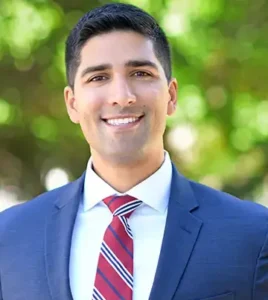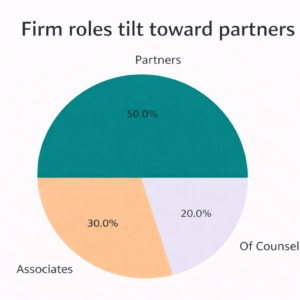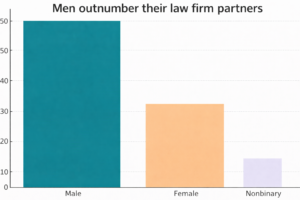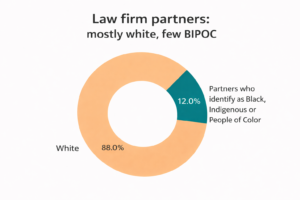Griffith v. El Paso County, Colorado, et al.
Darlene Griffith, a transgender woman, filed a civil rights lawsuit concerning her pretrial confinement at the El Paso County Jail in Colorado. The district court dismissed Griffith’s complaint under Federal Rules of Civil Procedure 12(b)(1) and 12(b)(6). Griffith sought reversal.
She specifically appealed the dismissal of her constitutional claims under Section 1983 and her claims under the Americans with Disabilities Act and the Rehabilitation Act. The 10th Circuit Court of Appeals in February concluded remand was required, but only on some of Griffith’s claims. The court reversed and remanded for further proceedings on Griffith’s 14th Amendment equal protection claim against Sheriff Bill Elder in his official capacity, Fourth and 14th Amendment cross-gender search claims against Elder in his official capacity, and Fourth Amendment abusive search claim against Deputy Andrew Mustapick.
The appeals court vacated the district court’s order dismissing Griffith’s ADA and Rehabilitation Act claims under Federal Rule of Civil Procedure 12(b)(6) because those claims were dismissed without prejudice for lack of subject matter jurisdiction under Rule 12(b)(1) and that ruling was unchallenged on appeal. The court otherwise affirmed.
The matter was again before the 10th Circuit on Elder’s petition for rehearing en banc and Griffith’s response to the petition for rehearing en banc. The petition and the response were circulated to all judges of the court who are in regular active service, and a poll was called but the poll didn’t carry. Consequently, Elder’s request for en banc rehearing was denied.
Judges Timothy Tymkovich, Allison Eid and Joel Carson would grant the petition. Judge Veronica Rossman filed a separate concurrence in support of the denial of en banc rehearing, which was joined by Judge Richard Federico. Tymkovich filed a separate dissent from the denial of en banc rehearing, which was joined by Eid and Carson. Judge Harris Hartz filed a separate statement.
Hartz wrote that while he didn’t vote to en banc the case, he agreed with Tymkovich’s dissent in full. “Also, I fail to see why we should issue a mandate in this case at this time when it is so likely that the Supreme Court will give us guidance on a relevant important issue within the next few weeks,” Hartz noted.
“This court is between a rock and a hard place,” Tymkovich wrote in the dissent. “The Supreme Court has held that ‘that the [rational basis] standard of review we adopted in Turner applies to all circumstances in which the needs of prison administration implicate constitutional rights.’”
But Tymkovich explained the high court also held in a later case that “all gender-based classifications today warrant heightened scrutiny.”
“This case puts those statements at odds because prison officials house inmates according to their sex,” Tymkovich wrote.
Tymkovich asserted Griffith’s claim implicates both United States v. Virginia’s heightened scrutiny for sex discrimination and Turner v. Safley’s rational basis review for prison regulations.
“Had we properly wrestled with the question, we would have concluded that Turner applies unless the Supreme Court explicitly creates a carveout for sex classifications in the prison context,” Tymkovich wrote. “Even so, I do not think that transgender classifications are based on sex for purposes of the Equal Protection Clause and that heightened scrutiny was impermissible for that reason as well.”
]]>“AI is no longer a future trend. It’s here now, and it’s already testing the boundaries of ethics, professionalism and trust in our courts,” said CJI Board Chair Thor Nelson. “This forum will provide Colorado’s legal community with the insights needed to navigate the risks and seize the opportunities that AI presents.”
The event, which takes place at 4 p.m. Nov. 6 at Gibson, Dunn & Crutcher LLP, 1900 Lawrence Street, Denver, CO, will bring together judges and legal experts to explore how AI is reshaping the practice of law, from courtroom ethics to law firm innovation.
To register, visit https://bit.ly/CJI-TLF-2025.
]]>
Department, has been appointed to the University of Denver’s Board of Trustees. He will serve a four-year term, contributing to strategic oversight in areas such as advancement, athletic affairs, audit, campus life, faculty and educational affairs and finance and investment.
Agron’s appointment reflects his longstanding ties to the university. A graduate of the University of Denver Sturm College of Law, he is a founding member of the law school’s Dean Advisory Board and a former member of the Law Alumni Council. Agron also has taught business and corporate law as an adjunct professor. In 2017, he was honored with the Robert H. McWilliams Jr. Alumni Professionalism Award for his commitment to ethical practice, professionalism, pro bono service and dedication to the DU community.
]]>Lobby Day leaders will guide participants through key legislative issues, help them share their stories with lawmakers and ensure all voices are heard.
“Being a Lobby Leader is more than a volunteer title, it’s an opportunity to step up with purpose, to lead through storytelling, and remind our elected officials that LGBTQIA+ Coloradans are here to stay,” said Aspen Rawson, a One Colorado lobby leader.
The expansion of the event reflects One Colorado’s commitment to breaking down barriers between LGBTQIA+ Coloradans and the policymaking process. The event will feature a day of training on advocacy and storytelling and a day of lobbying.
“In a time when immigrant rights, reproductive rights and LGBTQIA+ rights are under attack across the country, community leadership and unity are essential,” said Brandi Hardy, lead field organizing strategist at One Colorado. “Transgender, non-binary and gender-expansive folks have become the scapegoat for far right extremists. LGBTQIA+ Lobby Day isn’t just about showing up for one day, it’s about building the infrastructure needed to protect our communities, for years to come.”
For more information, visit Lobby Day Attendee Pre-Registration.
]]>Health care spending is expected to take center stage, followed by education, housing affordability and tax reform. Questions about wildfire insurance, labor and employment law, construction regulations and artificial intelligence are also expected to be prioritized this session.
Medicaid and the State Budget
“The elephant in the room is Medicaid,” said Cooper Reveley, a senior policy adviser with

Brownstein in Denver. “It’s what everyone is looking at and thinking about and the biggest line item in the state budget.”
Federal changes under H.R.1, dubbed the “One Big Beautiful Bill Act,” passed on July 4, 2025, have intensified pressure on the state’s finances. Reveley said Medicaid spending is squeezing other priorities, such as education and transportation.
In response, the 2026–27 budget proposed by Colorado Gov. Jared Polis calls for slowing Medicaid’s growth rate, capping benefits, freezing provider reimbursement increases and cutting funding for local public health agencies.
“Even if you’re not directly impacted, you should be thinking about Medicaid,” Reveley said. “The Medicaid budget has grown because of many individual and well-intentioned efforts to provide services, and it is very difficult to peel back.”
Education and Fiscal Tradeoffs
Education is the second-largest line item in the budget. School districts “have a loud voice and are experienced at advocating, so this will have a big impact on the budget,” Reveley said.
As in 2025, lawmakers are expected to balance the budget without raising taxes or breaching limits set by the Taxpayer’s Bill of Rights, or TABOR. Last year, unspent cash-fund balances were swept into the General Fund, a strategy likely to resurface.
To help close the budget gap, Polis has proposed privatizing the state’s workers’ compensation insurance, drawing concern from labor unions, according to Reveley. Without privatization, lawmakers would need to identify about $400 million in additional alternative savings or revenue.
Housing Affordability
Housing and insurance affordability are at the forefront of the Colorado Chamber of Commerce’s 2026 Legislative Agenda. “Colorado ranks among the most expensive states in the nation for homeowners’ insurance, which, combined with other cost-of-living pressures, places significant strain on the state’s economy and workforce,” said Meghan Dollar, the chamber’s senior vice president of government affairs.
Business leaders warn that costs are undermining workforce recruitment and retention. “Increased costs are making it harder to grow and compete for top talent,” said Loren Furman, chamber president and CEO.
The chamber’s priorities include lowering homeowners’ insurance premiums through disaster mitigation incentives, expanding funding for residential resiliency, streamlining housing development and increasing supply. They are urging lawmakers to oppose new local taxes and fees, including vacancy taxes, short-term rental taxes and real estate transfer fees.
Commercial Real Estate
New compliance demands have commercial real estate owners bracing for potential impacts.
HB 25-1090, effective Jan. 1, requires landlords to provide all-inclusive pricing for advertised goods and services, including new rules for leases and utility charges. While the intent is transparency, the law may prove difficult to implement.
“Compliance will present significant challenges and expenses for landlords as the bill’s

parameters are not clearly delineated,” said Mark F. Bell, a partner at Stinson LLP. He added that “sound legal advice to navigate compliance and risks will rise to the forefront, and litigation to test the bill’s limits will certainly ensue.”
Separately, HB 25-1240 expands protections for tenants using housing subsidies and strengthens enforcement of the warranty of habitability — changes that could influence investment decisions in the multifamily sector.
“2026 will likely be a transitional year for Colorado’s multifamily and residential rental market,” Bell said, noting landlords and investors should expect greater scrutiny of lease terms and eviction processes. As a result, “careful lease drafting and proactive compliance will be essential.”
Wildfire Insurance and Liability
A wildfire-liability bill is intended to change wildfire insurance and liability in the state.
“Wildfire insurance is going to be on the legislative agenda in 2026 whether policymakers like it or not,” said Jason Wesoky, president of the Colorado Trial Lawyers Association.
One proposal for insurance is a state-administered wildfire fund. Utilities that opt into the fund could access a structured recovery mechanism after catastrophic fires, even as they remain accountable under existing liability law.
“The goal isn’t to take risk away from utilities,” he said. “It’s to manage financial risk across the system so victims aren’t left waiting years for compensation and utilities remain solvent enough to pay valid claims.”
Recent legislation, including HB 25-1182, has increased transparency about how insurers use wildfire risk models and factor mitigation into rates. Wesoky said these changes could lead to more targeted underwriting and fewer non-renewals.
Corporate Tax Pressures
Fiscal pressures are driving tax changes for Colorado businesses. David Strong, a tax partner with WilmerHale in Denver, explained the “One Big Beautiful Bill Act” has “created a projected shortfall in Colorado state tax revenues.” A special state legislative session in the fall produced multiple laws in response to the shortfall, each effective for tax years beginning Jan. 1.
Strong highlighted key provisions of those laws: “Colorado corporations and businesses will need to add back the federal qualified business income deduction and the foreign-derived deduction eligible income amount to state taxable income. Several new jurisdictions have been added to Colorado’s expanded tax haven list.”
Colorado will replace the multistate tax commission “3-of-6 test” with a unitary reporting regime based on the “single economic enterprise” concept. Strong said, “This should make it easier for multi-state businesses to align Colorado filings with other states.”
Start-up and early-stage founders, employees and investors may benefit from taxpayer-favorable changes to the Internal Revenue Code Section 1202, and companies with research and development spending may benefit from updates to IRC Section 174.
“Executives and boards will need to be proactive to manage compliance and anticipate budget impacts,” Strong said.
Labor and Employment Law Changes
In addition to tax changes, employers are eyeing a shifting labor landscape. HB 5-1001, which took effect near the end of 2025 and amended the Colorado Wage Claim Act,

increases penalties for misclassification, tightens limits on wage deductions and allows individuals who own or control at least 25% of a business to confront personal liability for certain violations.
“Employers now face higher financial, reputational and operational risk for wage violations,” explained Rob Hinckley and Sarah Andrzejczak, shareholders at Buchalter’s Denver office, by email.
The amended wage claim act also expands enforcement authority for the Department of Labor and Employment, which will be able to adjudicate wage claims up to $13,000 as of July 1, nearly doubling the previous cap.
Two additional employment law changes may make the 2026 ballot. A right-to-work initiative would affect unionized workplaces, while a just-cause employment proposal would

eliminate at-will employment for many private employers.
“That would fundamentally change the employer-employee relationship,” Hinckley and Andrzejczak said.
In 2026, they also will be watching measures that would cut income taxes and exempt tips and overtime pay from state taxation.
Construction Law
Construction law practitioners are watching as new statutes and court rulings reshape housing development.
Two 2025 developments set the stage for 2026, said Zubin Chadha, an attorney at Hall Booth Smith, P.C.’s Denver office. In April, the Colorado Supreme Court decision in Mid-Century Insurance Co. v. HIVE Construction Inc. reinforced limits on negligence claims in

construction defect cases. “The court took a more restrictive view of tort claims tied to contractual duties,” Chadha said. The ruling clarified that willful and wanton conduct is not exempt from the economic loss rule when the duty allegedly breached arises from a contract.
The Colorado American Dream Act, establishing the Multifamily Construction Incentive Program, took effect Jan. 1. “The MCIP promises a more predictable litigation environment for multifamily builders, while still offering heightened consumer protections,” Chadha said. Amendments to the Colorado Common Interest Ownership Act raise the threshold for homeowner associations to pursue construction defect litigation from a simple majority to 65% of unit owners.
AI and Regulatory Uncertainty
Colorado’s Consumer Protections for Artificial Intelligence law, SB4‑205, was set to take effect on June 30 of this year, but its future is uncertain.
The law was challenged by President Trump’s December 2025 executive order, which aimed to nullify state regulations around AI.
If the Colorado law takes effect, employers, public agencies and health care providers would encounter reporting obligations, data governance requirements and scrutiny over automated decision-making.
“Lawmakers increasingly see AI as a cross-cutting issue rather than a standalone one,” Reveley said. “It touches everything from health care delivery to employment practices to how the state itself operates.”
A Consequential Session Ahead
Taken together, the 2026 legislative session is shaping up to be a defining moment for Colorado policymakers, especially for those up for re-election this year. Budget pressures tied to Medicaid, mounting affordability concerns and evolving legal frameworks are converging at a time when lawmakers have limited fiscal flexibility and high political stakes.
“With so many issues intersecting — from health care and housing to labor, insurance and construction — there are no easy answers,” Reveley said. “What happens in 2026 will set the tone for years to come.”
]]>In a published order, the court held that Wesley’s claim alleging fraud on the court during his prior § 2255 proceedings constitutes a “true” Rule 60(b) motion and remanded that issue to the district court. However, the panel denied authorization for Wesley to file a second or successive § 2255 motion challenging his sentence or conviction based on alleged new evidence of prosecutorial misconduct, concluding he failed to meet the statutory standard.
The ruling matters because it tightens the rules on successive post-conviction challenges, while clarifying when courts must still step in to protect the integrity of the habeas process.
To read the full published opinion, visit ca10.uscourts.gov/sites/ca10/files/opinions/010111374516.pdf.
]]>
“When I entered the practice in 1970, there were 15 Black attorneys in the state of Colorado out of about 5,000 lawyers,” recalled Judge Gary Jackson, one of the founders. “Every single day I would be the only Black person in the room.”
Then serving as the only Black district attorney in Denver, Jackson was assigned to the courtroom of Judge Zita Weinshienk, who was the first female Municipal Court judge in Denver at the time and who became the first female Denver District Court judge in 1972.
“It was the best thing that ever happened to me,” he said. “She was brilliant. And she didn’t blink when I showed up with a 3-inch afro and platform shoes.”
More than 50 years later, SCBA continues to expand Colorado’s legal profession through mentorship, professional development, advocacy and community engagement.
Jackson emphasized SCBA’s founders did not think of themselves as separating from other associations but as “trying to level the playing field.” He explained, “We came together because we wanted a welcoming space where we could meet, talk and strategize.”
Bar leadership statewide was overwhelmingly white in the 1970s, and informal networks that fueled advancement were largely inaccessible to lawyers of color.
“The time was ripe for change,” said Jackson, following the assassination of Martin Luther King Jr. and the ongoing Vietnam War.
For Jackson and his colleagues, all of whom were activists in law school, progress required organization, and SCBA was the answer.
A Name Rooted in History and Resilience
The association’s name reflects its mission. Samuel Cary was a Black attorney who practiced in Denver in the first half of the 20th century, serving clients often overlooked by the legal system. He was disbarred in 1926 by the Colorado Bar Association but reinstated in 1953. Jackson, SCBA’s historian, said the disbarment was fueled by racism. For the founders of SCBA, Cary’s career illustrated commitment tempered by discrimination.
Building a Network with Purpose
In its early years, SCBA focused on strengthening the professional standing of Black attorneys while advocating for broader representation across the legal system. Meeting in homes and private offices, members worked to ensure Black lawyers were considered for judicial appointments, prosecutorial roles, bar leadership positions and committee assignments.
With time, SCBA has emerged as a professional anchor and a pipeline, connecting attorneys to roles in which they can influence policy, jurisprudence and public trust. Members are frequently asked to provide insight on measures in the state legislature and participate on legal panels and organizations nationwide.

Joyce Akhahenda, treasurer of SCBA and chief deputy with the Office of the Colorado State Public Defender, said the association provides camaraderie and encouragement. She has served in the public defender’s office for 20 years. “It’s always been a roller coaster, but I feel like I am needed,” she said.
As with SCBA’s mission, Akhahenda hopes to recruit diverse students to public defense, saying, “We want to get more Black students and students of color interested in doing public defense work.”
Each year, she anticipates SCBA’s homecoming, where all members “get together and do a roll call,” she said. “They talk about what they’re doing now, and it enables the younger lawyers to see all these people who have overcome so much and where they are now.”

Elevating Legal Leaders
The association’s impact is evident in the number of members who have gone on to serve as prosecutors, judges, law firm partners and civic leaders.
Several members have risen to the highest levels of the judiciary, including service on the Colorado Supreme Court and the federal bench. Their careers reflect the association’s commitment to excellence, public service and fairness, reinforcing the idea that diversity in leadership strengthens the legal system as a whole, noted Jackson.
He added, “Simply being in the courtroom” successfully challenged assumptions about who belongs in positions of authority.
Jackson himself was appointed in 2013 to Denver County Court judge, serving until retiring in 2020. His honors, mirroring the success of SCBA, include the Wiley Branton Award from the National Bar Association, CBA’s Award of Merit, the Norman Early Lifetime Award from the National Black Prosecutors Association and the Judicial Excellence Award for County Court Judge of the Year from the Colorado Judicial Institute.
Jackson’s his most cherished award is his induction to the NBA’s Fred Gray Hall of Fame, he said, as the NBA was formed as a result of Black lawyers being excluded from the American Bar Association until the 1950s.
Women Enduring Impact on SCBA
Women have played an essential role in SCBA since the beginning, with Gloria Monroe, then a public defender, holding the position of president in the organization’s second term.
SCBA’s legacy of inclusion was on display during Patricia Powell’s presidency in 1994. That year, two vacancies opened on the U.S. District Court for the District of Colorado, and three Black candidates were named finalists.
“Each of the Black nominees was more than worthy of appointment to the federal bench,” said Powell, who presided over SCBA’s endorsements of the candidates. Wiley Daniel was ultimately confirmed as the first Black person in the role. He later served as chief judge, as well as the first Black president of the Colorado Bar Association.
Powell later oversaw a second landmark endorsement when SCBA member Claudia Jordan was appointed to the Denver County Court, making her the first Black female judge in Colorado. “I felt so fortunate to lead our organization’s efforts in making history for a second time in a single year,” Powell said.
A Catalyst for Broader Inclusion
As the state’s first bar association for people of color, SCBA paved the way for the creation of other affinity bar organizations in Colorado, including those representing Hispanic and Asian Pacific American attorneys.
Annita Menogan, who served as SCBA president in 1995, recalled organizing a joint reception with Peggy Montaño, then president of the Colorado Hispanic Bar Association, to honor Judge Carlos Lucero and Daniel, who was endorsed by SCBA under Powell. Lucero had just been appointed to the 10th Circuit Court of Appeals, becoming the court’s first Hispanic judge.
The celebration nearly faltered when a heavy snowfall blanketed Denver. “We had invited more than 200 people and waited nervously to see if anyone showed up,” Menogan said. Despite the conditions, more than 100 guests, including both honorees, attended. “It demonstrated our communities’ commitment to celebrate the momentous occasion,” she said. “It was a party.”
Resilience in Action
In 2020, SCBA rapidly adapted to COVID policies even as overlapping national crises tested the association. When the pandemic shut down the country, SCBA canceled its signature events, including homecoming, the summer barbeque and the annual gala, its primary fundraiser.
SCBA’s adjustment to virtual meetings was soon overshadowed by the May 25, 2020, murder of George Floyd, which then-president Scott Evans said deeply affected the members and, for some, resurfaced painful memories.
SCBA’s executive committee released what Evans called the association’s “strongest and most impactful” statement. It was widely shared throughout Denver’s legal community.
Evans, a partner with Buchalter, said 2020 revealed SCBA’s “strength, intellect, compassion and resilience.”
Investing in the Next Generation
From the beginning, SCBA has invested in law students. The organization established the Sam Cary Scholarship Endowment Fund in 1986.
“The Endowment Fund is important because we were one of the first chapters of the National Bar Association to create its own charitable entity in 1986,” Jackson said. The fund has distributed several hundred thousand dollars to Black students from the University of Denver and the University of Colorado.
A Living Legacy
Despite progress, disparities persist more than 50 years after SCBA’s founding. About 5% of American attorneys are Black, and Black women represent less than 1% of all partners in U.S. law firms, according to the National Association for Law Placement.

SCBA president Crist Whitney said the keys to countering disparities are embedded in SCBA’s founding mission: supporting each other, mentorship and advocacy. Many of SCBA’s 250 current members seek out ways to mentor younger attorneys.
Whitney learned about SCBA at a back-to-school barbecue when he was a student at the University of Colorado. A lover of history, Whitney quickly connected with Jackson. “Being able to hear about the struggles of different Black attorneys and what they had gone through to get to where they were was very helpful to my career,” he said.
Today Whitney serves at Rathod Mohamedbhai LLC as a civil rights attorney. “Sam Cary continues to be a safe space for us to gather, compare notes, see how people are feeling in these days,” he said.
He tries to pay forward what the association poured into him as a young lawyer. “When I run across a young law student, I invite them to coffee and make an introduction to (fellow SCBA members) so they can learn from them just as I did.”
]]>The effort builds on decades of work to expand public access to the Supreme Court’s proceedings. While live audio of oral arguments is currently available, same-day access to decision summaries is restricted.
The project’s creators say their goal is to make those moments more accessible, while clearly labeling the videos as AI-generated to avoid confusion.
The initiative is expected to raise debate — the Supreme Court has long been resistant to cameras and expanded media coverage.
]]>Colorado Education Association v. Colorado State Board of Education
The Colorado Education Association appealed the district court’s judgment denying its petition for review of two rules governing the evaluation of teacher performance adopted by the Colorado State Board of Education. Department of Education Rule 3.3 establishes a performance standard of “partially effective” and defines it as one of two ratings that demonstrates ineffectiveness.
Department of Education Rule 5.4 establishes the appeal process for teachers who have received two consecutive ratings demonstrating ineffectiveness but limits the grounds upon which a teacher can base their appeal. The CEA argues, as it did to the district court, that the board exceeded its statutory authority by defining the “partially effective” performance standard as a second rating demonstrating ineffectiveness and by impermissibly restricting the grounds on which teachers may appeal a second consecutive rating demonstrating ineffectiveness.
The Colorado Court of Appeals, like the district court, disagreed that the board exceeded its authority. It affirmed the judgment of the district court.
]]> program exploring how artificial intelligence is transforming eDiscovery and investigations. The 1 p.m. session on Nov. 12 will examine how AI tools help legal teams uncover patterns, mitigate risk and improve efficiency. It also will address the ethical and practical challenges of emerging technologies in litigation.The speaker for the event is Stephen Herrera, vice president of Business Development for eDiscovery and Investigation at Repario, where he partners with clients to navigate complex data challenges and strengthen AI-powered legal strategy.
program exploring how artificial intelligence is transforming eDiscovery and investigations. The 1 p.m. session on Nov. 12 will examine how AI tools help legal teams uncover patterns, mitigate risk and improve efficiency. It also will address the ethical and practical challenges of emerging technologies in litigation.The speaker for the event is Stephen Herrera, vice president of Business Development for eDiscovery and Investigation at Repario, where he partners with clients to navigate complex data challenges and strengthen AI-powered legal strategy.
This CLE discussion is open to Colorado Hispanic Bar Association (CHBA) members through HNBA Region XIII.
Register at https://atllp.zoom.us/webinar/register/WN_Bx_NXX2WQDq1XMojVWWQFQ#/registration.
]]>Since January, they have coordinated legal care for political protesters involved in No Kings and Free Palestine demonstrations through the Protest Defense Committee, provided legal support to those impacted by ICE raids, led community trainings and defended clients with limited resources in cases ranging from misdemeanor theft to homicide.

‘Of the People’
In January, Ashley Cordero and Carly Hamilton opened Del Pueblo Law, a holistic indigent defense firm, in Denver. Spanish for “of the people,” Del Pueblo has served more than 100 clients in 2025. The firm welcomed attorneys Laura Jensen and James Castle and paralegal Ana Bradley to the team in October.
Del Pueblo Law is Latina-led, an identity Cordero, Hamilton, and Jensen proudly embrace. Jensen explained, “In my years of practice, it is obvious—and stark—to me that the majority of attorneys are white, and that’s not representative of the population we serve.”
She continued, “As a Latina who grew up in Denver, I can connect with clients and build client trust without the usual hierarchy between attorney and client.” She and a recent client discovered they grew up in adjacent neighborhoods. “With our shared backgrounds, it’s ‘Let’s have a conversation person-to-person,’” she said. “We are not there to tell clients what to do but to give them the resources, to answer their questions, to advise them and to acknowledge their agency to make decisions about their lives.”
Cordero noted that Del Pueblo’s approach to client relationships is driven by personal experience. “I too have been othered,” she said. “As a queer and Latina woman, I ask how to pronounce your name, I ask what are your pronouns because I know your case is not the only thing important to you—you’re thinking about your family, maybe immigration status, often a lack of housing. We aim to be client-centric, seeing our clients as a whole person.”
Holistically Client-Centered
Before founding Del Pueblo Law, Cordero, Hamilton and Jensen served together as public defenders in Arapahoe County, where they experienced the limitations of heavy caseloads. “We could point people to lists for mental health support, but there was little we could do to meet their housing needs and help them access the resources they needed, even with the amazing social workers we had because they were overworked too,” Hamilton said.
Del Pueblo Law is located inside the Blossom House community center, which includes a library, mental health services and early childhood education. “Renting this space was intentional because we could cross-refer,” Cordero said. She often partners with social workers to support clients.
Fierce Criminal Defense
“Del Pueblo Law is rooted in fierce criminal defense for incarcerated and low-income people, protester defense, community organizing and building political power for radical change,” Hamilton said. She represents clients in some of the firm’s most serious cases. As a co-founder of the Defenders Union of Colorado, she also organizes for fairer working conditions for defenders, especially core staff, and for better outcomes for clients.
Jensen has represented clients in complex cases spanning double homicide to drug trafficking, earning full acquittals, including in a double-homicide self-defense trial.
Cordero is known as an ally of the trans community; she campaigned and testified for the Kelly Loving Act, a law passed in May that expanded protections for transgender people in Colorado. The Denver Bar Association’s Access to Justice Committee recognized Cordero for her protester defense work as one of five 2025 Pro Bono Stars.
Because most of Del Pueblo’s clients are incarcerated, pretrial or indigent, the firm operates on a tight budget. “We’re scrappy with a purpose,” Cordero said. “We run with a low overhead so that we can offer pro bono and low bono services.”
Mentoring the Next Generation
Despite their demanding schedules, the attorneys of Del Pueblo set aside time for mentorship. Jensen said, “I had imposter syndrome much of my way through college and law school, and my mentors didn’t look like me. We want to use our privilege as attorneys in this community to create a space to mentor young Latina attorneys through different programming—to uplift those voices and be those mentors that we didn’t have.” The firm contracts with the Alternate Defense Counsel (ADC) and brings in interns and fellows through the ADC Inclusivity Fellowship and the LAW SCHOOL… Yes We Can! program, as well as Cordero and Hamilton’s alma mater, the University of Denver Sturm College of Law.
Upcoming Workshop
Del Pueblo Law, LLC will host a workshop on personal rights and community-based alternatives to traditional law enforcement at 6:30 p.m. on Dec. 10 at Blossom House in Denver.
“As community lawyers, empowering individuals to know their rights and inform their interactions with law enforcement is essential to our work,” said Del Pueblo partner Carly Hamilton. “We acknowledge the systemic targeting of our clients by law enforcement and ICE. This training will cover rights when interacting with law enforcement, victims’ rights and other ways to keep the community safe.”
A separate workshop will be offered at the same time for middle and high school students. This class will teach constitutional rights in a practical, accessible way.
The event will include dinner, childcare and interpretation services. No registration is required, and the event is open to the public. For more information, text 720-681-0313.
]]>Blood Cancer United, formerly the Leukemia & Lymphoma Society, is dedicated to curing blood cancers and improving the quality of life for patients and their families. A blood cancer survivor, Hobaugh has supported the organization since 2023, regularly taking part in its annual Light the Night event with Brownstein’s team.
During his two-year term, Hobaugh will collaborate with the organization’s executive director and staff to provide guidance, thought leadership and collaborative action that drives revenue, community building, advocacy and awareness of the mission.
“Serving on this board is meaningful for many members,” Hobaugh said. “Most have been touched by blood cancer — whether through the loss of a loved one, caring for someone battling the disease or surviving it themselves. I am no different.”
]]>There is a judicial district nominating commission for each of Colorado’s judicial districts that selects nominees for district and county judicial vacancies. Each district nominating commission is chaired by a justice of the Supreme Court, a non-voting member of the commission. Attorney appointments are a joint appointment by the governor, chief justice and attorney general.
Supreme Court Judicial Nominating Commission, effective Jan. 1, for terms expiring Dec. 31, 2031:
- David Powell of Denver to serve as an attorney and a member from the First Congressional District, appointed
- Patrick O’Rourke of Highlands Ranch to serve as an attorney and a member from the Fourth Congressional District, appointed
- Steven Erkenbrack of Grand Junction to serve as an attorney and a member from the Third Congressional District, appointed
- Daneya Esgar of Pueblo to serve as a non-attorney and a member from the Third Congressional District, appointed
- Janet Buckner of Aurora to serve as a non-attorney and a member from the Sixth Congressional District, appointed
- Eva Henry of Thornton to serve as a non-attorney and a member from the Eighth Congressional District, appointed
- Alvina Vasquez of Wheatridge to serve as a non-attorney, and a member at-large
For a list of all boards and commission appointments, click here.
]]>Singer, previously sentenced to 180 months for possession of ammunition after a felony, challenged the inclusion of his § 645 convictions in his sentence. The court found that § 645 extends to assaults on unborn victims, which fall outside the federal definitions of crimes of violence. Citing prior 10th Circuit precedent, the court held that where a state statute covers conduct not included in the federal definition, it cannot serve as a basis for sentence enhancement.
The case is remanded for resentencing consistent with the ruling.
Read the full published opinion at ca10.uscourts.gov/sites/ca10/files/opinions/010111374543.pdf.
]]>Since its inception, the firm has tried six cases, taken three arbitrations to final hearing, argued three appeals and handled dozens of motions. The firm has also secured favorable settlements and avoided high-value risks on behalf of its clients as it continues to offer top-tier legal talent through a lean, focused approach.
]]>Law firm profits rose 14.1% in the fourth quarter of 2025 — the biggest year-over-year profit increase since the pandemic boom of 2021 and early 2022 — according to the Thomson Reuters Institute’s latest Law Firm Financial Index, released on Tuesday. The Thomson Reuters Institute and Reuters share the same parent company.
The supercharged final quarter cemented a strong year, said Bryce Engelland, a senior industry data analyst with the Thomson Reuters Institute, and was largely fueled by billing rate increases and slowing expense growth.
“2025 ended up being a spectacular year, but there are real warning signs going into 2026,” Engelland said.
Most worrisome for law firms was a deceleration in demand for transactional practices in the fourth quarter. M&A demand growth fell five percentage points from the third quarter, while bankruptcy demand picked up significantly in December, according to the report.
That could signal an upcoming decline in the U.S. economy, which historically has resulted in lower law firm profits. Countercyclical practices that typically thrive in a down economy, such as litigation, bankruptcy, labor, and employment tend to have lower billing rates than transactional practices, Engelland noted.
“Traditionally, law firms have had trouble with sustained high-tempo growth,” he said. “They tend to grow in bursts, then economic trouble arrives, and they go into a much rougher patch.”
The index compiles quarterly financial metrics from 195 large and mid-sized U.S. law firms on key factors such as demand, productivity, billing rates, and expenses.
An economic downturn could also spur corporate general counsels to ramp up their reliance on artificial intelligence tools and move more legal work in-house in a bid to cut costs, the authors warned.
Legal departments have already been moving work from higher-cost firms to midsized firms with lower billing rates, according to the report.
]]>J. T. v. Osseo Area Schools, Independent School Dist. No. 279
Multiple federal laws afford protections for children with disabilities in public schools. Three statutory schemes are particularly relevant to this case. Section 504 of the Rehabilitation Act of 1973 provides that no qualified individual with a disability shall be excluded from participation in, denied the benefits of or subjected to discrimination under any federally funded program solely by reason of her or his disability.
Similarly, Title II of the Americans with Disabilities Act prohibits qualified individuals with disabilities from being excluded from or denied the benefits of a public entity’s services, programs or activities by reason of disability. While the antidiscrimination guarantees of Section 504 and Title II apply in a variety of contexts, the Individuals with Disabilities Education Act offers federal funds to States in exchange for the commitment to furnish the core guarantee of a “free appropriate public education” to children in public schools with certain physical or intellectual disabilities. The centerpiece of the IDEA is the provision of an individualized educational program, which spells out a plan to meet all of the educational needs of a child with a qualifying disability.
A.J.T. is a teenage girl with a rare form of epilepsy that severely limits her physical and cognitive functioning. She suffers from seizures that are so frequent in the mornings that she cannot attend school before noon, though she is alert and able to learn from noon until 6 p.m. For the first few years of her schooling, school officials accommodated A.J.T.’s condition by permitting her to avoid morning activities and instead receive evening instruction. But when A.J.T.’s family moved to Minnesota in 2015, her new school district Osseo Area Public Schools, Independent District No. 279 denied her parents’ repeated requests to include evening instruction in A.J.T.’s IEP. Between 2015 and 2018, A.J.T. received only 4.25 hours of instruction daily compared to the typical 6.5-hour school day for nondisabled students in the district. After even further cuts to A.J.T.’s school day were proposed, her parents filed an IDEA complaint with the Minnesota Department of Education, alleging that the school’s refusal to provide afterhours instruction denied A.J.T. a free appropriate public education.
An administrative law judge determined that the school district had violated the IDEA and ordered the school to provide compensatory education and evening instruction. Federal courts subsequently affirmed A.J.T.’s IDEA victory.
A.J.T. and her parents then sued under the ADA and the Rehabilitation Act, requesting a permanent injunction, reimbursement for certain costs and compensatory damages. The district court granted summary judgment for the school, and the 8th Circuit Court of Appeals affirmed. In so holding, the 8th Circuit stated that a school district’s failure to provide a reasonable accommodation wasn’t enough to state a prima facie case of discrimination under Monahan v. Nebraska, which requires a plaintiff to prove conduct by school officials rising to the level of bad faith or gross misjudgment.
The U.S. Supreme Court held that schoolchildren bringing ADA and Rehabilitation Act claims related to their education aren’t required to make a heightened showing of bad faith or gross misjudgment but instead are subject to the same standards that apply in other disability discrimination contexts.
The court vacated the judgment and remanded the case.
Chief Justice John Roberts Jr. delivered the opinion for a unanimous court. Justice Clarence Thomas filed a concurring opinion, in which Justice Brett Kavanaugh joined. Justice Sonia Sotomayor filed a concurring opinion, in which Justice Ketanji Brown Jackson joined
The Barring Act establishes default settlement procedures for claims against the government and subjects most claims to a six-year limitations period. However, the act includes an exception. If another law confers authority to settle a claim against the government, that law displaces the Barring Act’s settlement mechanism, including its limitations period.
In 2002, Congress enacted a statute providing combat-related special compensation to qualifying veterans who have suffered combat-related disabilities. Under federal law, retired veterans generally must waive a portion of their military retirement pay to receive Veterans Affairs disability benefits, but the CRSC statute allows combat disabled retirees to receive special compensation up to the amount of waived retired pay.
Simon Soto served in the Marine Corps from 2000 to 2006, including two tours in Operation Iraqi Freedom. He was medically retired in 2006 and later received a 100% disability rating for post-traumatic stress disorder from the VA. In 2016, Soto applied for CRSC payments. The Secretary of the Navy approved his application but limited retroactive compensation to six years, citing the Barring Act’s limitations period. Soto filed a class-action lawsuit arguing that the Barring Act’s six-year limitations period doesn’t apply to CRSC claims because the CRSC statute constitutes another law that provides its own settlement mechanism.
The district court granted summary judgment for the class, but the Federal Circuit reversed, holding that the CRSC statute doesn’t explicitly grant settlement authority and therefore cannot displace the Barring Act.
The U.S. Supreme Court held that the CRSC statute confers authority to settle CRSC claims and thus displaces the Barring Act’s settlement procedures and limitations period.
It reversed and remanded.
Justice Clarence Thomas delivered the opinion for a unanimous court.
Federal inmate Donte Parrish alleged that he was placed in restrictive segregated confinement for 23 months based on his suspected involvement in another inmate’s death. After a hearing officer cleared him of wrongdoing, Parrish filed suit in federal district court seeking damages for his time in segregated confinement.
The district court dismissed his case on March 23, 2020, holding that some claims were untimely and others unexhausted. When the court’s order reached the federal prison two weeks later, Parrish was no longer there, having been transferred to a different facility. Parrish received the dismissal order three months after it was issued and promptly filed a notice of appeal, explaining his delayed receipt. The 4th Circuit Court of Appeals recognized that Parrish’s notice of appeal came after the 60-day appeal period for suits against the U.S., so it construed Parrish’s filing as a motion to reopen the time to appeal under Section 2107(c). On remand, the district court granted reopening for 14 days.
Parrish didn’t file a second notice of appeal. Although both Parrish and the U.S. argued that the original notice of appeal was sufficient, the 4th Circuit held that Parrish’s failure to file a new notice of appeal within the reopened appeal period deprived the court of jurisdiction.
The U.S. Supreme Court held that a litigant who files a notice of appeal after the original appeal deadline but before the court grants reopening need not file a second notice after reopening. The original notice relates forward to the date reopening is granted.
It reversed and remanded.
Justice Sonia Sotomayor delivered the opinion of the court, in which Chief Justice John Roberts Jr. and Justices Sameul Alito Jr., Elena Kagan, Brett Kavanuagh and Amy Coney Barrett joined. Justice Ketanji Brown Jackson filed an opinion concurring in the judgment, in which Justice Clarence Thomas joined. Justice Neil Gorsuch filed a dissenting opinion.
Gorsuch noted that he would have dismissed this case as improvidently granted.
On Oct. 18, 2017, the FBI raided the wrong house in suburban Atlanta. Officers meant to execute search and arrest warrants at a suspected gang hideout at 3741 Landau Lane but instead stormed 3756 Denville Trace, a quiet family home occupied by petitioners Hilliard Toi Cliatt, his partner Curtrina Martin, and her 7-year-old son. A six-member SWAT team breached the front door, detonated a flash-bang grenade, and assaulted the innocent occupants before realizing their mistake. The cause of the error was Special Agent Lawrence Guerra’s reliance on a personal GPS device, combined with the team’s failure to notice the street sign for “Denville Trace” and the house number visible on the mailbox.
Left with personal injuries and property damage, petitioners sued the U.S. under the Federal Tort Claims Act seeking damages resulting from the officers’ alleged negligent and intentional actions during the raid. The district court granted summary judgment to the government. The 11th Circuit Court of Appeals affirmed, applying a unique approach to FTCA claims.
The FTCA waives the federal government’s sovereign immunity from suit as to certain torts committed by federal employees acting within the scope of their employment. But that waiver is subject to statutory exceptions, including two relevant to a law enforcement misconduct case like this one. The first is the intentional-tort exception in Section 2680(h), which bars claims against the government for 11 enumerated intentional torts. The second is the discretionary-function exception in Section 2680(a), which bars claims against the government that are based on an official’s exercise of discretionary functions. Section 2680(h) also contains a “law enforcement proviso” which countermands the intentional-tort exception, allowing suits for six specified torts (including assault, battery, false imprisonment, and false arrest) to proceed against the U.S. when the torts are committed by “investigative or law enforcement officers.”
While most courts hold that the law enforcement proviso applies only to the intentional-tort exception, the 11th Circuit’s approach is different in two key respects. First, the 11th Circuit alone holds that the proviso overrides all exceptions in Section 2680, including the discretionary-function exception, meaning that intentional-tort claims covered by the proviso automatically proceed to the merits without further analysis of other applicable Section 2680 exceptions. Second, to compensate for this plaintiff-friendly approach, the 11th Circuit permits the government to assert a restrictive supremacy clause defense at the liability stage, allowing the government to escape liability when an officer’s actions have some nexus with furthering federal policy and reasonably comply with the full range of federal law.
Applying its distinctive approach, the 11th Circuit held that the law enforcement proviso protected petitioners’ intentional-tort claims from both the intentional-tort and discretionary-function exceptions.
The court dismissed petitioners’ negligence claims under the discretionary-function exception, reasoning that Guerra enjoyed discretion in preparing for the warrant execution. On the merits of the remaining intentional-tort claims, the court found the government had a valid supremacy clause defense and granted summary judgment for the U.S.
The U.S. Supreme Court held that the law enforcement proviso in Section 2680(h) overrides only the intentional-tort exception in that subsection, not the discretionary-function exception or other exceptions throughout Section 2680.
It also held that the supremacy clause doesn’t afford the U.S. a defense in FTCA suits. The FTCA is the supreme federal law governing the U.S.’s tort liability and serves as the exclusive remedy for damages claims arising from federal employees’ official conduct. The statute generally makes the government liable under state law on the same terms as a private individual would be liable under the law of the place where the tortious conduct occurred.
On remand, the Supreme Court explained that the 11th Circuit should consider whether Subsection (a)’s discretionary-function exception bars either the plaintiffs’ negligent- or intentional-tort claims—undertaking that assessment without reference to the mistaken view that the law enforcement proviso applies to Subsection (a).
The court vacated the judgment and remanded the case.
Justice Neil Gorsuch , delivered the opinion for a unanimous court. Justice Sonia Sotomayor filed a concurring opinion, in which Justice Ketanji Brown Jackson joined.
This case involves the jurisdiction of the U.S. Tax Court over appeals from collection due process hearings when there is no longer an ongoing levy. The dispute here began in 2012, when Jennifer Zuch and her then-husband Patrick Gennardo each filed an untimely 2010 federal tax return. Gennardo subsequently submitted an offer in compromise to resolve outstanding tax liabilities. This offer implicated $50,000 in estimated tax payments that the couple had previously sent to the IRS; following the offer, the IRS applied these payments to Gennardo’s account. For her part, Zuch later amended her 2010 tax return to report additional income, which resulted in an additional $28,000 in taxes due. But Zuch maintained that the IRS should have credited the couple’s $50,000 payment to her account, entitling her to a $22,000 refund.
The IRS disagreed and sought to collect her unpaid taxes by placing a levy on her property pursuant to its authority under Section 6331(a). Zuch requested a collection due process hearing to contest the levy. The appeals officer rejected Zuch’s argument about the misapplied $50,000 tax payment and issued a notice of determination sustaining the levy action under Section 6330(c)(3). Zuch then appealed to the tax court under Section 6330(d)(1). During the multi-year proceedings before the agency and the tax court that followed, Zuch filed several annual tax returns showing overpayments. Each time, the IRS applied these overpayments to her outstanding 2010 tax liability rather than issuing refunds. Once Zuch’s liability reached zero, the IRS moved to dismiss the tax court proceeding as moot, arguing that the tax court lacked jurisdiction because the IRS no longer had a basis to levy on Zuch’s property. The tax court agreed. But on appeal, the 3rd Circuit Court of Appeals vacated the dismissal, holding that the IRS’s abandonment of the levy didn’t moot the tax court proceedings.
The U.S. Supreme Court held that the tax court lacks jurisdiction under Section 6330 to resolve disputes between a taxpayer and the IRS when the IRS is no longer pursuing a levy.
It reversed and remanded.
Justice Amy Coney Barrett delivered the opinion of the court, in which Chief Justice John Roberts Jr. and Justices Clarence Thomas, Samuel Alito Jr., Sonia Sotomayor, Elena Kagan, Brett Kavanaugh and Ketanji Brown Jackson joined. Justice Neil Gorsuch filed a dissenting opinion.
Gorsuch asserted that if Zuch had prevailed on her claim, the IRS wouldn’t have a basis for keeping her overpayments in later years.
“Nothing prevented the Tax Court from saying as much,” Gorsuch wrote. “Today’s decision holding otherwise leaves [Zuch] with no meaningful way to pursue her argument that the IRS erred or to recoup the overpayments she believes the IRS has wrongly retained. Along the way, the [court’s] decision hands the IRS a powerful new tool to avoid accountability for its mistakes in future cases like this one.”
Danny Rivers was convicted in Texas state court of continuous sexual abuse of a child and related charges. After unsuccessfully seeking direct appeal and state habeas relief, Rivers filed his first federal habeas petition under Section 2254 in August 2017, asserting claims of prosecutorial misconduct, ineffective assistance of counsel and other constitutional violations. The district court denied the petition in September 2018, and Rivers appealed to the 5th Circuit Court of Appeals, which granted a certificate of appealability on his ineffective-assistance claim in July 2020.
While his appeal was pending, Rivers obtained his trial counsel’s client file, which contained a state investigator’s report that he believed was exculpatory. After the 5th Circuit denied his request to supplement the record on appeal, Rivers filed a second Section 2254 petition in the district court based on this newly discovered evidence.
The district court classified this second-in-time filing as a second or successive habeas application under Section 2244(b) and transferred it to the 5th Circuit for authorization to file. Rivers appealed the transfer order, and the 5th Circuit affirmed, holding that the fact that Rivers’s first petition was still on appeal did not permit him to circumvent the requirements for successive petitions under Section 2244 as to his second filing.
The U.S. Supreme Court held that once a district court enters its judgment with respect to a first-filed habeas petition, a second-in-time filing qualifies as a second or successive application properly subject to the requirements of Section 2244(b).
The court affirmed the judgment.
Justice Ketanji Brown Jackson delivered the opinion for a unanimous court.
]]> created award recognizes individuals whose leadership, integrity and advocacy have made a difference by advancing Colorado’s nonprofit sector.
created award recognizes individuals whose leadership, integrity and advocacy have made a difference by advancing Colorado’s nonprofit sector.
Downey leads Ireland Stapleton’s Regulatory Affairs and Government Relations practice. He is a prominent voice for nonprofit organizations across the state and is a former board chair of the CNA. He has represented the organization, along with the Colorado attorney general and secretary of state, before the 10th Circuit Court of Appeals, successfully defending the Colorado Charitable Solicitations Act.
In addition, Downey serves on the Colorado Charitable Gaming Board, is vice chair of the Denver Film Board, and ran the Children’s Museum of Denver.
Founded in 1986, the CNA represents more than 34,000 organizations statewide.
]]>These volunteer roles throughout the state’s judicial districts play a key part in promoting judicial equity, broad representation, and public trust in the courts. The program will highlight the importance of commissioner service, especially for community members from historically underrepresented backgrounds, and will outline the application process.
A networking happy hour with food begins at 5:30 followed by a presentation and Q&A session from 6 to 7 p.m. The event also will be offered virtually.
To RSVP, visit https://chba.net/event/judicial-taskforce-diversity-on-the-bench-coalition-recruiting-event.
]]>Brent’s Place is a long-term home away from home for families of pediatric and adult patients who are battling life-threatening illnesses at hospitals throughout the Rocky Mountain West.
The effort is one of the many ways Fox Rothschild supports and empowers the well-being of children through its Generation Fox initiative.
]]>If you’re interested in volunteering to provide resume feedback, please sign up at www.signupgenius.com/go/10C0B4FABAC29A2F5C07-61614288-volunteers#/. Breakfast and coffee will be provided.
For more information, email or call Michelle Sanchez at [email protected] or (720) 363-6862.
]]>Magistrate Judge Questions DOJ’s Statutory Authority
The year began with District of Colorado Magistrate Judge Cyrus Chung issuing a recommendation to grant a motion to quash the subpoena.
He wrote in his Jan. 5 recommendation, “The Executive Branch cannot engage in new lawmaking on its own and, thus, until and unless Congress creates a statute justifying it, a purpose of investigating the legal activity of gender-affirming care — let alone ending it — cannot ground a legitimate investigation.” He also criticized DOJ’s justification as a “meager attempt” that “falls short.”
DOJ had 14 days to respond with objections, which they did at the eleventh hour. In its filing, DOJ argued the subpoena was a lawful exercise of its investigative authority.
Separate Lawsuit Challenges Suspension of Care
On Jan. 20, a lawsuit was filed in the Denver District Court against Children’s Colorado over its suspension of medical gender-affirming care for patients under the age of 18. All the plaintiffs identify as transgender and are between the ages of 9 and 17. The lawsuit said suspending gender-affirming care can cause “irreparable, life-altering and potentially life-threatening harm” to transgender minors.
Children’s Colorado suspended medical gender-affirming care, which includes pharmaceutical interventions like hormone therapies and puberty-delaying treatments, on Jan. 2.
In a statement released Jan. 20, following the lawsuit filed by the families of transgender youth, the hospital said, “Children’s Hospital Colorado lawfully suspended medical gender-affirming care for patients under the age of 18 because of mandates from the federal government that threaten to deny access to hundreds of thousands of patients who rely upon us for care that is not available anywhere else in our region.”

Federal Funding Risk
Patrick O’Rourke, senior vice president and chief legal officer at Children’s Colorado, explained the mandates threaten to pull Medicare and Medicaid funding from hospitals that offer gender-affirming care. “As a safety net hospital system, nearly half of our patients are covered by Medicaid,” he said. “This loss of funding would critically impair our ability to provide care for the multitudes of children who depend on us.”
Gender-affirming care for minors is legal in Colorado. Children’s Hospital Colorado has never provided surgical gender-affirming care. The hospital will continue to provide behavioral health and support services.
The legal saga is expected to have far-reaching implications for the limits of federal investigative authority, the protection of sensitive medical data and the legal boundaries for how and when the executive branch can probe lawful medical practices.
Origins of the Dispute
The standoff between DOJ and Children’s Colorado began last summer, when DOJ served the hospital with the subpoena that sought patient-related information, provider communications and internal hospital records, as well as other categories of documents.
Children’s Colorado moved swiftly to quash the request, arguing it was overly broad and exceeded DOJ’s statutory authority. For much of the year, the litigation remained under seal, limiting public knowledge of the government’s demands.
That changed in late 2025, when a federal judge lifted public-access restrictions on key filings.
The magistrate judge’s recommendation to quash the subpoena will be reviewed by U.S. District Judge S. Kato Crews. He has not yet set a timeline for his ruling on whether to adopt, modify or reject the magistrate judge’s recommendation.
O’Rourke said the hospital’s primary motivation for the motion to quash the subpoena was to protect patient privacy. “The privacy of patients’ medical records and team members’ employment records is entitled to the highest degree of protection under state and federal law,” O’Rourke said. “The subpoena unreasonably sought to obtain this information without a legitimate legal purpose, so Children’s Colorado sought protection from a federal court.”
Similar Challenges in Other Jurisdictions
Children’s Colorado was one of more than 20 hospitals, physician groups or other providers served a subpoena by DOJ in 2025 that sought records on gender-affirming care. Some hospitals acquiesced to DOJ’s demands, and others are negotiating.
Like Children’s Colorado, Boston Children’s Hospital, Children’s Hospital of Philadelphia and Seattle Children’s Hospital successfully filed motions to quash. According to a report from Faegre Drinker, “Although the government generally has a low bar to enforce investigative subpoenas, the three district courts have found that the DOJ’s subpoenas were served for an improper purpose and/or were overbroad.”
]]>Hess is the owner and attorney at the Law Office of R.L. Hess, where his practice focuses on civil, family and estate law. Hess has worked in several public service roles, including a detective for the Montrose Police Department and mayor of the City of Craig, He earned his B.A. from Colorado Mesa University in 2008 and his J.D. from Purdue Global Law School in 2020.
]]>As part of the effort, the firm’s team met with the house’s chef, who taught them skills and techniques to prepare, cook and serve the meals.
The work is part of Fox Rothschild’s charitable initiative, Generation Fox, which has donated $1 million to community organizations that support youth throughout the nation.
RMHC-Denver provides essential services to help strengthen families and promote healing during a child’s health care journey. The House of Denver, in the Uptown neighborhood, provides access to accommodations near local hospitals for families.
]]>According to court documents, Jarod Harsha engaged in three episodes of misconduct while working at a law firm. In 2022, a client hired the firm to represent the client in a dissolution of marriage case. Harsha entered his appearance in the case that May. Harsha initially neglected to file the client’s sworn financial statement and direct the client to take a mandated parenting class.
Harsha filed a memorandum of understanding in the case, which the court adopted as an order on Sept. 1, 2023. In that order, the court ordered the parties to file the required documents to complete a dissolution decree or other status report within 14 days. Harsha didn’t file a status report until Oct. 23, 2023, stating that he would file a separation agreement and parenting plan forthwith. He didn’t do so, however. Nor did he respond to the court’s order to show cause why the case should not be dismissed for failure to prosecute, even though he reviewed that order.
In January 2024, the court dismissed the case. Harsha didn’t notify the client that the case had been dismissed and did not return the client’s subsequent communications. In May 2024, the client contacted the law firm, and a partner at the firm successfully moved to reopen the case. Harsha separated from the law firm that month.
In May 2023, while Harsha was with the law firm, a law student interning with the firm drafted a notice of temporary orders for a client, which Harsha then filed in the client’s case. But Harsha billed the client 0.2 hour for drafting the notice and 0.1 hour for sending the notice to the intern for filing, and the intern billed the client 0.2 hour for filing the notice. Harsha’s and the intern’s billable hourly rates were $340 and $225, respectively. They swapped their billing entries to meet what they understood were daily billing expectations.
In early 2024, Harsha contracted, on the law firm’s behalf, with a company to provide legal services for clients via the company’s online platform, for which the company would pay a fee to the firm. Initially, the law firm used its financial management software to process the fees. After the company began to use a different payment service, Harsha—whose personal checking account was linked with the law firm’s business account—negligently selected his personal account rather than the firm’s business account to receive the company’s payments. From February to May 2024, the company made five payments totaling $1,642.34 to Harsha’s account. In May 2024, Harsha repaid the law firm the full amount, though he was likely entitled to a portion of the fees.
The presiding disciplinary judge approved Harsha’s stipulation to discipline and suspended him for three years, all to be stayed upon Harsha’s successful completion of a three-year probation, with conditions.
In 2022, Colin Wilhelm defended clients—a nonprofit organization and its board of directors—in a lawsuit filed by the clients’ former employee. The opposing party prevailed at a trial held that December. After judgment entered in the case, the clients asked Wilhelm to file a notice of appeal. Wilhelm told his clients that he didn’t believe an appeal was viable; even so, he agreed to file a notice of appeal but told his clients that he wouldn’t continue to represent them in the appeal thereafter. Indeed, Wilhelm had informed his clients during the trial and afterwards that he wouldn’t be taking additional cases and closing his law practice to work as a lobbyist.
In January 2023, Wilhelm closed his law practice. That month, the opposing counsel in the clients’ matter moved for attorney’s fees and costs in the amount of $54,185.14 and served the pleadings on Wilhelm as counsel of record. Wilhelm didn’t confer with his clients about the filings, and he didn’t file a response. On Feb. 15, 2023, the court granted those motions as well as a motion for entry of judgment, which the opposing party filed that day. Though Wilhelm received the orders through the electronic filing system, he didn’t review the orders or inform his clients about them. Nor did he review with his clients the writ of garnishment and writ of execution that the opposing party later filed in the case, even though he received both filings.
Wilhelm didn’t file a notice of appeal in the case by the deadline of February 17, 2023, nor did he alert his clients that he wouldn’t be filing one. Rather, on the day the notice was due, a member of the board of directors spoke with Wilhelm and understood that Wilhelm would be filing the notice of appeal. In July 2023, a board member discovered the writ of execution when checking to see if the notice of appeal had been filed. Wilhelm didn’t respond to his clients’ attempts to communicate with him, nor did he respond to the opposing counsel’s communication alerting Wilhelm that his clients were trying to speak to the opposing counsel, and requesting permission to speak with them about the judgment.
The presiding disciplinary judge approved the parties’ stipulation to discipline and suspended him for six months, with two months to be served and four months to be stayed upon Wilhelm’s successful completion of a two-year probation, with conditions. Wilhelm’s suspension takes effect July 16.
]]>
commemorating CLS’s 100th anniversary, featuring panels on rural access to justice and Colorado’s long-standing commitment to providing legal services to low-income residents.
Colorado Supreme Court Chief Justice Monica Márquez delivered the keynote address, emphasizing bipartisan collaboration and calling on attorneys to “answer the call to represent the most vulnerable in our society.” U.S. Representative Diana DeGette (CO-1) presented a congressional proclamation honoring CLS’s century of service.
The awards were presented to Attorney General Phil Weiser, Jon Asher, Marilyn Billings and Tina Smith.
Four attorneys, William “Buck” Mann, Wesley “Wes” Hassler, Stephen “Steve” Koerner and David Sipiora, along with Brownstein Hyatt Farber Schreck’s Denver office, received Pro Bono Service Awards for their volunteer commitment to CLS and low-income Coloradans.
]]>
A small number of clerks spoke, but dozens attended to demonstrate a unified stance that Peters’ release would jeopardize election security and undermine public trust.
Last week, clerks issued a joint letter to the governor to stress that releasing Peters now would send the wrong signal during a period of intensified scrutiny of election systems.
]]>“A lot of firms have a strategic growth timeline. We aim for the best strategic fit — not growth for growth’s sake,” said John Kellogg, partner-in-charge of FBT’s Denver office. While “we do not have a timeline for strategic growth,” he added, the Gibbons combination is a natural fit because both firms are known for their client-forward practices and share a collaborative culture.
“When it comes to culture, a key aspect of both firms is that we are driven by our clients,” Kellogg said. “We are unique among the national firms in that we do not operate with a home office or a mothership.”
FBT’s structure drives collaboration among offices, “encouraging our team to utilize talent regardless of location that can best serve the specific needs of our clients,” he said. “We believe that approach is in our clients’ best interests and drives further development of our team.”
FBT’s reputation for team-based work is mirrored by Gibbons. “We prioritize responsiveness,” Kellogg said. This was demonstrated during his recent travels, with every client receiving a prompt response from the client service team, regardless of Kellogg’s availability.
Leaders from both firms said the combination, approved by each partnership, will create a comprehensive platform for client service and community engagement. FBT Gibbons will serve clients ranging from Fortune 500 companies to high-growth startups and middle-market businesses.
FBT Chairman Robert Sartin will serve as chairman of the new firm. Gibbons Managing Director Peter Torcicollo and FBT CEO Adam Hall will serve as co-managing partners.
Torcicollo said the combination “supercharges our strategic ambitions,” pointing to expanded litigation talent and a nationwide footprint. The firm’s increased scale, Hall added, will support ongoing investments in talent, technology and operational systems
The combination brings together two firms with long histories. FBT — with more than 650 attorneys in 18 offices — advises over half of the Fortune 100 and has developed a reputation for industry-focused transactional services in finance, manufacturing, energy and innovation. Gibbons, with nearly 100 years of experience, has a strong presence in the Northeast and national recognition for litigation and regulatory work.
Together, Kellogg said, “we have a true national platform.” A transaction lawyer, Kellogg appreciates that FBT Gibbons will have a strong presence in key U.S. markets, including Denver, Dallas, New York and San Francisco. On the litigation side, a multi-jurisdiction footprint “is a big benefit for our clients when you’re in the middle of substantial litigation,” he said.
Logistically, the firms are “dedicating a lot of resources to create a team of individuals that will work collaboratively across all offices and industry groups” to ensure a smooth transition, noted Kellogg. “We are making sure everybody is part of the right team.”
Targeted operational practices that could improve efficiency across the combined firm are being implemented, and FBT Gibbons will continue FBT’s longstanding emphasis on mentorship and personalized professional development.
Kellogg said he’s grateful for the opportunities the combination presents for his team and clients. “We started with six lawyers in our Denver office in 2024, and we have over 25 lawyers today. Now, as attorneys are hearing about this combination, they recognize that FBT Gibbons provides a strong platform to expand their practice and better serve their clients.”
Looking beyond 2026, Kellogg believes “opportunities in our region and nationally will continue organically as we remain client-focused and continue to deploy the right talent mix to serve our clients.”
]]>
Lily Girton and Pragya Panta are Berg Hill Greenleaf Ruscitti LLP’s newest associates.
While completing her J.D. at the University of Denver Sturm College of Law, Girton joined BHGR in January as a law clerk. As a corporate law associate, Girton represents startups, closely held businesses, private equity and other private company clients, assisting them with mergers and acquisitions and representing buyers and sellers in various industries.
Pragya Panta’s practice area is criminal law, representing clients in all stages of criminal proceedings. She also represents individuals, businesses and public entities in

disputes in state courts and arbitration proceedings.
Panta earned her Bachelor of Business Management and Bachelor of Laws from Kathmandu University School of Law in Nepal then came to Colorado to pursue her LLM at the University of Colorado Law School.
]]>In the case In re Parental Responsibilities Concerning W.P.A.S., the court dismissed a father’s challenge to a permanent allocation of parental responsibilities as untimely, holding that the 49-day appeal period began to run once the trial court entered its parenting and child support orders. The panel distinguished prior case law governing divorce proceedings, concluding unresolved attorney fee requests under section 14-10-119, C.R.S., do not delay finality in stand-alone parental responsibility cases.
The court also reversed a $79,822 attorney fee award to the mother, finding the trial court abused its discretion by setting the amount without adequate evidentiary support. Although the district court attempted to calculate a figure based on billing records, it acknowledged the absence of evidence regarding prevailing market rates and attorney qualifications. The case was remanded for further proceedings on attorney fees, including consideration of the mother’s request for appellate fees.
Read the full published opinion at coloradojudicial.gov/system/files/opinions-2026-01/24CA1985-PD.pdf.
]]>He will also serve as co-chair of the CLBA’s Judicial Endorsements Committee. In this role, he will interview candidates who are seeking appointment to judicial vacancies in Colorado, help determine whether the organization will issue endorsements, and draft formal endorsement letters to the Office of Gov. Jared Polis.
Hardy said the position “provides the unique opportunity to get to know a variety of incredibly smart and talented individuals who are seeking judicial appointment in Colorado through the candidate interview process.”
]]>Olsky Law is positioned to manage disputes with significant operational, financial, and reputational consequences for clients. The firm concentrates on high-exposure matters, including business torts, securities and financial fraud claims, fiduciary and partnership disputes, lender liability, bankruptcy-related litigation, broker-dealer controversies and arbitrations and regulatory enforcement proceedings.
Olsky brings more than two decades of experience in private commercial litigation and government-facing matters. Before launching his firm, Olsky was a partner at Fortis Law Partners, and he previously practiced at national firms in Washington, D.C., New York.
He also clerked on the U.S. Court of Appeals for the First Circuit. He earned his undergraduate degree summa cum laude from the University of Pennsylvania and his J.D. from Stanford Law School, where he served on the law review.
]]>Nominations will be accepted through Nov. 1, 2025, and the award will be presented in April 2026. Candidates should be within the first 15 years of their legal careers and demonstrate a record of advancing reform, improving public trust, and reshaping legal practices.
The award is designed to recognize past achievements and encourage leadership and innovation.
For more information and nomination forms, visit https://iaals.du.edu/alli-gerkman-legal-visionary-award.
Polsinelli Hires Former HHS OIG Senior Counsel for Health Care Litigation Practice
WASHINGTON — Polsinelli has hired Benjamin Wallfisch as a shareholder in its health care litigation and government investigations practices. Wallfisch is a former senior counsel in

the Office of Counsel to the Inspector General at the U.S. Department of Health and Human Services.
Wallfisch spent nearly six years at HHS advising on the Anti-Kickback Statute, Stark Law and False Claims Act. He contributed to advisory opinions, policy guidance, and new safe harbor regulations, and worked with the Department of Justice on fraud investigations and settlements.
Before his government service, Wallfisch practiced in the private sector for more than a decade. He earned his law degree from the University of Texas School of Law and his bachelor’s degree from the University of Pennsylvania.
Wallfisch will be based in Washington, D.C., and Denver.
CPT Group to Host Free CLE Webinar on Data Breach Risks
IRVINE, Calif. — Class action settlement administrator CPT Group, Inc., will host a free, continuing legal education (CLE)-accredited webinar on cybersecurity and breach response at 1 p.m. Pacific time, Sept. 30.
“From Prevention to Protection: Safeguarding Companies and Class Action Administrators in the Breach Lifecycle” will feature attorneys M. Anderson Berry, David Ross and Jackson Biesecker, along with CPT Group President Julie Green. Panelists will discuss lessons from recent breach litigation, evolving legal standards, and practical strategies for data protection.
The session will cover risk identification, incident response, ethical duties, and emerging threats such as AI-driven fraud and deepfakes. Participants will receive CLE credit at no cost. Register at www.lawline.com/course/from-prevention-to-protection-safeguarding-companies-and-class-action-administrators-in-the-breach-lifecycle/ClassActionsAgainstCybercriminals_FreeCPT.
Foley Hoag Adds Life Sciences IP Partner in Denver, Expands Office Space
DENVER — Foley Hoag has added life sciences patent attorney Matthew Jonsen, Ph.D., as a partner in its Denver office, the firm announced Sept. 17.
Jonsen advises biotech startups, emerging companies, and universities on patent prosecution, portfolio strategy, and freedom-to-operate analyses in areas including genetics, gene-based therapies, and molecular biology.
“Matt’s arrival expands our practice as the first IP partner in the western region,” said David Halstead, co-chair of the firm’s intellectual property department. His addition coincides with Foley Hoag’s move into a larger office in Denver’s LoDo Towers, which the firm said reflects its commitment to growth in the western United States.
Jonsen earned his law degree from the University of Denver College of Law, his Ph.D. in molecular biology and biochemistry from the University of Utah School of Medicine, and his bachelor’s degree from the University of Colorado, Boulder.
Perkins Coie Welcomes Back Veteran M&A Partner in Denver
DENVER — Perkins Coie has announced the return of mergers and acquisitions partner Jeff Beuche to its Denver office. Beuche, who previously played a leading role in the firm’s mergers and acquisitions (M&A) practice, advises public and private companies, investors, founders, and management teams on complex transactions in various industries, including technology, healthcare, life sciences, retail, energy, and natural resources.
Jason Day, co-chair of Perkins Coie’s corporate practice, said Beuche’s return strengthens the firm’s national M&A capabilities, following the addition of a group of M&A and private equity lawyers in Texas earlier this year.
Beuche said he was drawn back to Perkins Coie by the firm’s collaborative platform and reputation for pragmatic, execution-focused client service. He earned his law degree from the University of Colorado and his undergraduate degree from the University of Michigan.
]]>Before founding RMVAP, Hansen served as a student attorney with the Veterans Advocacy Project at the University of Denver Sturm College of Law, where she earned her law degree with a concentration in public interest law. In 2020, she co-founded RMVAP with Bradley Cummings, Natalie Sanders and Payton Martinez. The four met as fellow volunteers with the Veterans Advocacy Project at Sturm.
Hansen said, “I have the lofty ideas, Brad has the powers of execution, and Natalie, who is very skilled in IT, built out a lot of our infrastructure; plus, they have really incredible legal minds.” While Hansen is not a veteran, Cummings served in the Air Force, and Sanders and Martinez have family connections to the military.

“It was a dream of ours to keep offering these legal services to veterans. We had seen that there was such a great need within the veteran community,” she said. “It was a form of paying respect to those who had sacrificed so much.” RMVAP’s services are free or low-cost, thanks to grants and donations.
Much of RMVAP’s work focuses on discharge upgrades and Veterans Affairs (VA) disability benefits compensation.
Veterans struggling with mental health challenges or trauma are more susceptible to being discharged with “anything other than an honorable discharge,” which can lead to the denial of VA benefits, Hansen said. In some instances, veterans have received undesirable discharges due to circumstances associated with post-traumatic stress disorder, anxiety disorder, military sexual trauma or a brain injury.
In 2025, RMVAP successfully argued for seven discharge upgrades, with more than 100 reviews currently in process.
As for VA disability benefit compensation, RMVAP helps veterans secure benefits they might be eligible for “in recognition of the effects of disabilities, diseases or injuries incurred or aggravated while serving in the military,” Hansen said.
Today, RMVAP represents 400 to 500 veterans a year and connects many more to resources. “We can get 15 to 20 requests a day,” Hansen said. As an organization, RMVAP has successfully argued for more than $22 million in lifetime benefits for veterans.
“To me, the success stories that are the most meaningful show how a success in one of these legal areas has a ripple effect on an entire life,” she said.
The RMVAP team has seen this time and again in their work with veterans on the Navajo Nation, the largest tribal nation in the United States. About two years ago, for example, members of RMVAP connected with a Navajo veteran who was severely disabled from his time in Vietnam and, alongside his wife, at risk of homelessness.
“We had numerous calls and two meetings in person over the course of a year,” Hansen recalled. “When, at one point, he mentioned PTSD [post-traumatic stress disorder], I looked at his file, and his symptoms had been mischaracterized; they had not been at all connected to his boots-on-the-ground service.”
RMVAP facilitated a third-party mental health evaluation, and after an extended review, the veteran received full compensation benefits for his service-connected disability. “This has created housing stability for them and a much safer living situation,” she said. “Now he also is eligible for VA health care, and they have access to income that can support them and that acknowledges their disability and their sacrifice and service.”
In a nod to the nonprofit’s start, RMVAP partners with the Veterans Advocacy Project at Sturm to provide legal externship opportunities each semester. “The goal is not that everyone will go off to practice veterans law but to expose students to it,” Hansen said. “Perhaps they’ll take on one or two pro bono cases a year or approach their careers with the insight of having served at a nonprofit.”
In 2024, in recognition of work upholding the values and traditions of the legal profession, the Denver Bar Association recognized RMVAP with the Outstanding Program or Project Award.
As for Hansen, “There are huge gaps for people in marginalized groups, like veterans, when it comes to law services, and for me, that belief has only been strengthened through this work,” she said. “We are grateful for the opportunity to serve those who have served.”
]]>The 2025 honorees include:
- Magistrate Melissa Annis: Denver County Court, 2nd JD
- Judge John Mochel: Las Animas County Court, 3rd JD
- Chief Judge Susan Blanco: District Court, 8th JD
- Chief Judge Ryan Stuart: 23rd Judicial District (Judicial Leadership Award)
Chief Justice Monica Márquez, the keynote speaker, emphasized that safeguarding trust in Colorado’s judiciary is essential to the health of democracy.
]]>The move centralizes services in one location, where constituents can access marriage licenses, land transaction recordings, deeds of trust, foreclosure services and other legal filings. It also is a cost-saving measure, freeing space at the Webb building – its current location – for other city agencies and reducing the need for third-party rentals.
All services will continue to be provided with the same hours and procedures as before.
For more information, call 720-865-8400.
]]>“Steve’s holistic cross-specialization in business and extensive background in intellectual property law make him an asset to our growing Denver office,” said Adam Bass, president and chief executive officer of the firm. “Steve, Marie and their experienced team are a great fit for the capabilities of our firm.”
Weigler’s entrepreneurial perspective in building a predictive analytics startup and his role as senior counsel for a Fortune 50 technology company, have helped him develop the skills required to be an empathetic general counsel for businesses in the SaaS and eCommerce sectors.
Dutton specializes in intellectual property law and is a former legal extern with Venture Partners, the Technology Transfer Office of University of Colorado-Boulder. She earned her J.D. from the University of Missouri School of Law.
]]>Submissions come from lawyers, paralegals, judges, law professors and other members of the judiciary. In 5Q, you’ll discover insights into the profession while learning more about the people behind the practice.
This week’s 5Q features Heather Vickles, a partner at Venable LLP. Her practice focuses on labor and unemployment. Her favorite weekend activity is getting outside for some physical activity and spending “time in the beautiful country surrounding Steamboat Springs and the Yampa Valley where [she lives], cycling and hiking in the summer and fall, skiing and snowmobiling in the winter, avoiding the mud in the spring.”

Question 1: What is your favorite restaurant, and what’s your favorite thing to order there?
Vickles: The Ore House in Steamboat Springs. Who can resist a classic prime rib dinner with all the fixins, including a salad bar?
Q2: What’s your favorite movie or TV show?
Vickles: “Mad Men” — the writing, the depth of the characters, the costumes and the most perfect ending of any series I’ve ever seen.
Q3: Which celebrity was on the posters you had hanging on your teenage bedroom wall?
Vickles: Robert Redford.
Q4: How many years of experience do you have?
Vickles: 32.
Q5: Which rule of evidence do you hate the most and why?
Vickles: The business records exception to the hearsay rule because just when you think you’ve got it mastered, you encounter a trial judge with a new take.
Read more about Vickles and her judiciary experience at www.venable.com/professionals/v/heather-fox-vickles.
5Q allows Colorado legal professionals to share their insights and personal experiences with the community.
We accept submissions from lawyers, paralegals, judges, law professors and other members of the judiciary.
5Q responses are edited for clarity and length and will be published in the order received.
We will begin accepting submissions for this feature in the next couple weeks. We appreciate your patience; however, if you have questions, email [email protected].
]]>In addition to serving as chair of WTO’s Attorney Review Committee, Ronk has built a thriving class action and commercial litigation practice, earning national recognition as a rising star from Benchmark Litigation and Best Lawyers in America.
A strategic leader who sets the direction and development of major cases to establish priorities, Ronk represents clients in complex commercial litigation and class and mass actions.
Ronk is a mentor in the Leadership Council on Legal Diversity program. She earned her J.D. from Harvard Law School and B.A. from Northwestern University.
]]>Attorney members of each commission are jointly appointed by the governor, the chief justice, and the attorney general.
The following appointments are for terms expiring Dec. 31, 2031:
4th Judicial District Judicial Nominating Commission:
- Ian Kalmanowitz of Colorado Springs, to serve as an attorney and a member from El Paso County, appointed.
- Audrey Ramos of Colorado Springs, to serve as a non-attorney and a member from El Paso County, appointed.
9th Judicial District Judicial Nominating Commission:
- James Fosnaught of Glenwood Springs, to serve as an attorney and a member from Garfield County, appointed.
10th Judicial District Judicial Nominating Commission:
- Danita Alderton of Pueblo, to serve as an attorney and a member from Pueblo County, appointed.
- Shawn Conti of Pueblo West, to serve as an attorney and a member from Pueblo County, appointed.
- Alexis Romero Stewart of Pueblo, to serve as a non-attorney and a member from Pueblo, Colorado, appointed.
13th Judicial District Judicial Nominating Commission:
- Andy McClary of Fort Morgan, to serve as an attorney and a member from Morgan County, appointed.
- Soraya Taylor of Stratton, to serve as a non-attorney and a member from Kit Carson County, appointed.
15th Judicial District Judicial Nominating Commission:
- Brooke Campbell of Cheyenne-Wells, to serve as an attorney and a member from Cheyenne County, appointed.
17th Judicial District Judicial Nominating Commission:
- Yangmee Lor of Thornton, to serve as a non-attorney and a member from Adams County, appointed.
19th Judicial District Judicial Nominating Commission:
- Kevin Strobel of Greeley, to serve as an attorney and a member from Weld County, appointed.
]]>
limitations under the Colorado Wage Claim Act applies to claims brought under the Colorado Minimum Wage Act. The unanimous decision in “By the Rockies LLC v. Perez” reverses an earlier appellate ruling that applied a six-year period for liquidated debts.
The Colorado Chamber of Commerce, which joined the U.S. Chamber of Commerce in filing an amicus brief in the case, praised the ruling. Chamber President and CEO Loren Furman
said the decision “ensures that Colorado employers don’t face overly burdensome record-keeping requirements and provides consistency between state and federal law.”
The Court’s ruling aligns the limitations period with the state’s three-year recordkeeping requirement for employers and federal labor law, providing additional clarity for businesses facing minimum wage disputes.
To read the prior amicus brief, visit www.uschamber.com/assets/documents/U.S.-Chamber-Coalition-Amicus-Brief-By-the-Rockies-LLC-v.-Perez-Colo.-S.-Ct.pdf.
Arnold & Porter Wins Summary Judgment for Vail Health in Antitrust Case
DENVER — Arnold & Porter secured a major victory for Vail Health in a federal antitrust case seeking more than $25 million in damages, after the U.S. District Court for the District of Colorado granted the health system’s motion for summary judgment on Sept. 10.
The lawsuit, Sports Rehab Consulting LLC et al. v. Vail Clinic, Inc., was filed in 2019 and alleged monopolization of the Vail Valley physical therapy market between 2012 and 2020, under Section 2 of the Sherman Act. The court’s 28-page order granted complete relief to Vail Health and awarded substantial costs, eliminating the prospect of a February 2026 trial.
Arnold & Porter joined the litigation in 2021 and led the defense through summary judgment. The ruling follows a recent Colorado appellate decision affirming Vail Health’s earlier state court win in related proceedings.
The defense team was led by partner Evan Rothstein with partners Colin O’Brien and Scott Lent, and associates Leah Schultz, Sam Sullivan, David Jelsma, Eliza Buergenthal, Andrew Ellingsen, and Mikaila Skaroff.
]]>- Guardianship: A client needs help pursuing guardianship of a minor family member who currently resides with them. A partnering support organization is available to provide interpretation services.
- Estate planning: A client seeks help preparing essential estate planning documents, including powers of attorney and a will. The client’s adult child can assist with communication.
For more information, contact Meghan Dill-Meinzer at (970) 353-7515 or [email protected].
]]>Harvell is a Montrose County Court judge, a position she has held since 2022. Her docket consists of criminal and civil matters. Harvell earned her B.A. from the College of Charleston in 2007 and her J.D. from the University of South Carolina School of Law in 2014.
]]>The team hand-crafted 20 soft polar fleece blankets in crib and twin sizes, ensuring they adhered to the hospital’s guidelines for pediatric patients.
The project is a reflection of the firm’s Generation Fox initiative, which aims to assist children who are facing difficult circumstances.
]]>
Denver corporate partner Jeff Sherman to the board, effective Jan. 1. Sherman advises clients through mergers and acquisitions and capital markets transactions as well as growing companies through their governance and SEC compliance issues.
Sherman previously served as a deputy leader of the corporate practice group.

Denver partner Gretchen Miller Busch heads Faegre Drinker’s food and agribusiness sector, effective Jan. 1. Miller Busch advises global food and agribusiness companies on legal, regulatory and business objectives, with a focus on corporate real estate services.
Miller Busch previously co-led the firm’s national food and agribusiness industry team and was a member of the board at the firm.

Denver partner Jared Briant will be the leader of Faegre Drinker’s intellectual property group, effective April 1. Briant works with clients in the technology, consumer products, and medical device industries. Briant has secured several victories in copyright, trademark, trade secret and false advertising cases in federal and state courts nationwide.
]]>Denver office managing shareholder David Gartenberg praised Theis for her leadership, deep subject-matter expertise and commitment to client service.
“Her deep proficiency in employment and labor law, combined with a collaborative approach and unwavering commitment to client service, make her an outstanding addition to our shareholder group,” Gartenberg said.
Theis advises and litigates on behalf of employers on labor and employment matters under federal and Colorado law. Her experience also includes representing airlines in transportation-sector matters. She earned her J.D., cum laude, from St. Louis University School of Law and her B.A., magna cum laude, from Colgate University.
]]>Airina Rodrigues, co-chair of the firm’s IP Department, said Kazmierski’s “postdoctoral experience in cell and molecular biology gives him a unique ability to help clients working at the forefront of life sciences and biotechnology and guide them through regulatory and policy challenges.”
As a registered patent attorney, Kazmierski represents inventors, entrepreneurs, scientists, in-house counsel and technology transfer managers. His work includes preparing freedom-to-operate, infringement, validity and patentability opinions and performing intellectual property due diligence. He also manages patent portfolios, counsels clients on strategy, and prepares and prosecutes U.S. and international patents involving DNA and RNA technologies, protein and antibody engineering, biological and gene therapies.
Kazmierski’s patent work also extends to pharmaceuticals, drug conjugates, diagnostic assays and the underlying tools that power modern research, frequently presenting to corporate counsel, legal associations and academic conferences.
Kazmierski earned his law degree from Washington University School of Law and his doctorate and bachelor’s degrees from Florida State University.
]]>The petition asked the court to recognize the dogs’ right to habeas corpus under Wisconsin law, arguing the writ was necessary to protect them from unlawful cruelty and to authorize judicial intervention, including potential transfer or release.
During the hearing, Dane County Circuit Judge Stephen Ehlke acknowledged that future generations may question the denial of legal relief for animals but concluded that existing law does not permit the requested remedy and dismissed the case.
The dispute arises in the wake of an agreement between Ridglan Farms and a special prosecutor to resolve potential felony animal cruelty charges. Under that agreement, the breeder will surrender its license by July 1, but the plaintiffs contend it imposes no additional protections for dogs that remain at the facility in the interim.
Professor Justin Marceau of the University of Denver Sturm College of Law, who directs the Animal Activist Legal Defense Project, said the ruling leaves the dogs without meaningful safeguards pending the license surrender. Christopher Berry, executive director of the Nonhuman Rights Project, characterized habeas corpus as the appropriate vehicle to enforce what the plaintiffs argue is a statutory right to be free from cruelty.
The attorneys also rejected Ridglan’s public assertion that recognizing relief in this case would threaten animal use in agriculture, research, hunting, or fishing, noting that Wisconsin’s cruelty statute contains exemptions for those activities.
The Nonhuman Rights Project is the only civil rights organization in the United States working through litigation, legislation and education to secure fundamental rights for nonhuman animals.
The Animal Activist Legal Defense Project at the University of Denver Sturm College of Law works to empower and defend animal advocates through activist defense, affirmative litigation, and training law students to join and transform the field of Animal Law.
]]>With nearly two decades of experience in the energy industry, Jessica Laramie continues to find meaning at the intersection of law, land and policy. Joining Steptoe & Johnson PLLC’s
Denver office as of counsel in October, she advises on title, regulatory and policy matters involving permitting, development, reclamation and carbon management. Laramie’s background spans private practice, in-house roles and higher education, where she led Western Colorado University’s energy management program and developed partnerships between academia and industry.
“What has kept me in energy for the last 20 years is the meaningful impact that this field has on our local communities, on our state, on our country and globally,” she said. “For many of us, regardless of how specialized we get, we see that contributions to energy and energy policy—which is so complex, so nuanced and so important—are crucial to human flourishing.”
For Laramie, the nuances and complexities of her field foster not only meaning but also joy. “The problem-solving is always different; no two days are the same,” she said. “It’s fun to be a part of the complexity and the meaningfulness within energy. There are ties from everything from geopolitics to economics to health and safety and security.”
Laramie’s move to Steptoe & Johnson was motivated by “the magnitude and diversity of their projects and clients and their reputation and nationally recognized standards in energy law.” She added, “It’s been amazing to be part of a culture of a group of very knowledgeable, passionate, hardworking folks who are willing to welcome in and help someone build up a practice—and value being here in Colorado and spending time outside and balancing work and family.”
Laramie’s appreciation for the land and residents of Colorado dates back to her days at the University of Denver Sturm College of Law—where she earned her J.D., as well as her master’s in natural resources and environmental law—and has given her a distinct perspective on the state’s future in energy policy.
Drawing on her experience in different energy sectors, Laramie believes that as Colorado navigates energy and industry in the current political climate, seeking points of alignment remains critical. “Most people can agree that energy should be reliable, affordable, accessible and sustainable,” she said. “What that means, how we get there or where we weigh those points against each other may vary, but the more we focus on our common values, the more successful we can be in creating policies and regulations that promote what Coloradans, as consumers and as citizens of our beautiful state, want.”
At Steptoe & Johnson, Laramie drafts title opinions and land and commercial contracts related to energy and natural resources development, with a focus on mineral and land agreements; advises clients on regulatory and policy matters; identifies risks associated with title defects; and recommends curative actions for clients developing natural resources.
]]>Williams, a leading white-collar criminal defense and investigations attorney, has handled hundreds of complex cases across the Western United States. And he has been consistently recognized by Chambers USA, Benchmark Litigation and Colorado Super Lawyers. A longtime mentor and former DU Alumni Council member, Williams serves on the Dean’s Advisory Board.
A former public defender, Williams remains active in criminal justice reform and community service. He serves on the boards of the Denver Metro Chamber of Commerce and St. Mary’s Academy. His pro bono efforts also have earned recognition from the Denver Bar Association’s Access to Justice Committee.
“Chad’s dedication to his colleagues, clients, and the broader community exemplifies the values we hold dear at Davis Graham,” said Kristin Lentz, co-managing partner of the firm. “His leadership, coupled with his commitment to ethical practice and mentorship, makes him not only an outstanding attorney but also a valuable member of our firm and the legal community.”
]]>James has been a teacher at Eads High School and an adjunct professor at Lamar Community College since 2008. She earned her B.A. and M.A. from Colorado State University Pueblo in 2002 and 2012, respectively.
]]>Tompkins’ appointment fills the vacancy created by the appointment of the Honorable Anthony Edwards to the Archuleta County Court and is effective immediately.
Tompkins is of counsel at Ross & Matthews, PC, a position she has held since 2020. Her practice consists of civil matters. Previously, she was an attorney at Parker, LLP (2019-2020); associate attorney at Soraya Joslin, PC (2017-2019); contract attorney at K. Tompkins Law (2016-2017); associate attorney at Suggs Law Firm (2016); and associate attorney at Pezold Barker & Woltz (2011-2015). Tompkins earned her B.A. from the University of Texas at Arlington in 2008 and her J.D. from the University of Tulsa College of Law in 2012.
Reynolds’ appointment fills the vacancy created by the appointment of the Honorable R. Reid Stewart to the 6th Judicial District Court and is effective Jan. 2, 2026.
Reynolds is a partner at The Reynolds Law Group, a position he has held since 2017. His practice consists primarily of civil and real estate matters. Previously, he was a partner at Bopp Reynolds Law Group (2012-2017); associate attorney at the Law Offices of Michael E. McLachlan (2011-2012); associate attorney at Goldman, Robbins & Nicholson, PC (2004-2011); and associate attorney at Brownstein Hyatt Farber Schreck, LLP (2001-2004). Reynolds earned his B.A. from the University of Colorado Denver in 1997 and his J.D. from Duke University School of Law in 2001.
]]>
Miller’s practice areas include catastrophic injury defense, healthcare professional liability, commercial litigation and product liability, with an “interest in defending high-exposure obstetrical and pediatric cases and has significant experience defending these cases across the country,” according to her biography on the WTO site.
A graduate with honors from the University of Georgia School of Law, Miller enjoys traveling, photography and UGA football.
Krantz’s practice areas include antitrust and competition, commercial litigation and investigations and compliance, with a focus on complex commercial litigation matters, “including on novel and evolving areas of antitrust law like algorithmic

price fixing and student-athlete compensation, according to his biography on the WTO site.
Krantz graduated cum laude from Northwestern University Pritzker School of Law and enjoys European soccer, hiking, musical theater and cooking.
]]>In Byers Peak Properties v. Byers Peak Land and Cattle, the court unanimously held that Colorado’s water-waste statute does not create a private right of action, meaning only the state engineer — not individual landowners — can bring enforcement actions against irrigators who run excess water through their ditches.
The ruling clarifies a 150-year-old statute and has major implications for water dispute resolution in Colorado, where competing demands for limited water resources have made water law one of the state’s most complex and contentious legal areas.
The Backstory/Colorado Water Court
The dispute arose from a century-old ranch near Byers Peak in Grand County that was divided in 1974 into East and West parcels. Cooperative arrangements between the owners to share water from two ditches ended when new owners arrived.
Byers Peak Properties (which owned the East Ranch) alleged that the West Ranch owner diverted excessive water that ran downhill as irrigation runoff, flooding their property. Byers Peak Properties sued under multiple theories: statutory water-waste violations, trespass, nuisance and seeking injunctive relief. The water court sided with the Byers Peak Properties on nearly every claim, issuing an operational injunction that restricted the West Ranch’s water diversions and awarding attorney fees.
The Colorado Supreme Court’s Reversal
The Colorado Supreme Court systematically dismantled the water court’s findings, establishing several important legal principles:
No Private Right to Sue for Water Waste
The court’s most significant holding addressed Colorado’s water-waste statute, which has existed since 1876. C.R.S. § 37-84-108 prohibits irrigators from running more water through their ditches than necessary, preventing waste. But who can enforce this prohibition? The court found that the statute itself provides the answer: Only the state can.
The companion statute specifies “suits for penalties shall be brought in the name of the people of the state of Colorado.” When the Colorado legislature included this state-enforcement remedy 150 years ago, the court reasoned, it foreclosed the creation of private remedies.
Supporting this conclusion, the court noted when the legislature wants to allow private lawsuits under other water provisions, it says so explicitly. The absence of such language in the waste statute was telling. The court noted even the 2015 amendments to § 37-84-108 reinforced only the state engineer has authority to administer the statute.
Related Statutes Also Don’t Apply
The plaintiffs also relied on two other statutes — §§ 37-84-124 and 37-84-125 — which address duties when irrigators divert excess water. But the court found these statutes protect water rights, not land from flooding. The plain language, the court explained, concerns preventing “extra water to come upon his land”— meaning the irrigator’s own land, not flooding onto neighboring property. These provisions address injury to another’s water rights by taking more than one’s share, not damage to land from flooding.
No Ancillary Jurisdiction Over Trespass and Nuisance Claims
Having concluded the plaintiffs had no viable statutory water claims, the court then addressed their common-law claims for trespass and nuisance. The court made clear: “water courts have exclusive jurisdiction over water matters,” which involve determinations about rights to use water, and can exercise ancillary jurisdiction over related issues that would directly affect the outcome of those water matters. (Ancillary jurisdiction allows a court to hear claims that are closely related to matters already properly before it, even if those claims would normally belong in a different court.)
But, the court held, without any valid water matter before the court, the trespass and nuisance claims were “only tangentially related to a water matter,” the court found, which is insufficient for water-court jurisdiction. The court noted that while the case included separate ditch alteration claims, those were unrelated to the flooding issues and couldn’t support jurisdiction over the runoff-related claims.
What The Byers Peak Properties Case Means
The Byers Peak decision has several practical implications. For landowners dealing with irrigation runoff damage, remedy lies in Colorado district courts through traditional tort claims like trespass and nuisance, not in Colorado water court under Colorado water-waste statutes. The Supreme Court explicitly stated it was expressing “no opinion on the merits” of such common law claims, leaving that door open.
For water-rights enforcement, the decision reinforces that Colorado’s administrative framework — with the state engineer as enforcer — is the exclusive mechanism for addressing statutory-waste violations. Private parties concerned about neighbors wasting water must work through state authorities.
The Byers Peak ruling also clarifies water-court jurisdiction, emphasizing that ancillary jurisdiction requires more than a tangential relationship to water rights. There must be a genuine water matter at the core of the dispute.
A Historical Perspective
The Colorado Supreme Court’s emphasis on the 150-year history of state enforcement reflects the distinctive character of western water law. Colorado’s prior appropriation doctrine — allocating water to whoever first put it to beneficial use rather than to riparian landowners, with senior appropriators having priority over junior ones — emerged from mining camps and early agricultural communities facing water scarcity.
From the outset, the legislature chose public enforcement for waste provisions, and the Colorado supreme court saw no reason to override that policy choice. This approach makes sense where water is administered by a public agency under “first in time, first in right” principles. Allowing multiple private parties to enforce waste provisions could create administrative chaos and inconsistent determinations about what constitutes waste.
Key Takeaways
The Byers Peak Properties decision serves as an important reminder that water law in Colorado operates through a carefully structured administrative and judicial framework, and private parties cannot simply bypass that framework, even when they’ve suffered real harm.
For anyone involved in water disputes in Colorado, the message is clear: Understand which forum has jurisdiction over which claims and recognize the distinction between protecting water rights (a matter for water courts and the state engineer) and seeking damages for harm caused by water (potentially a matter for district courts under common law).
— Michael J. Laszlo and Gabe Racz, Clark Hill
This article is intended for general informational purposes only and does not constitute legal advice or a solicitation to provide legal services. The information in this article is not intended to create, and receipt of it does not constitute, a lawyer-client relationship. Readers should not act upon this information without seeking professional legal counsel. The views and opinions expressed herein represent those of the individual author(s) only and are not necessarily the views of Clark Hill PLC, Clark Hill Solicitors LLP or Law Week Colorado. Clark Hill nor Law Week Colorado does not assume responsibility for the authors’ nor the article’s completeness, accuracy or timeliness.
]]>
Founded more than a century ago, ALI produces Restatements of the Law, Model Codes and Principles of Law that influence courts, legislatures and the legal academy worldwide. Membership is limited to 3,000 judges, lawyers and law professors and is considered a significant professional distinction.
“Professor Schwartz’s election is an extremely well-deserved honor and a reflection of the rigor and impact of his scholarship,” said Colorado Law Dean Lolita Buckner Inniss.
]]>The dispute stems from a decision by the U.S. Department of Health and Human Services to terminate certain grants awarded to four Democratic-led states: Colorado, California, Illinois and Minnesota. The targeted funding supports public health infrastructure as well as HIV testing, treatment and sexually transmitted infection surveillance programs. Federal officials had notified Congress earlier in the week of their intent to terminate the grants, as required under a provision in the recently signed Consolidated Appropriations Act.
Colorado joined the three other states in filing for emergency relief in anticipation of receiving formal termination notices. The lawsuit argues that cutting the funding would disrupt disease monitoring systems and undermine access to treatment for life-threatening conditions. State officials say the programs play a critical role in protecting public health across their communities.
The U.S. District Court for the Northern District of Illinois granted the TRO for 14 days, temporarily preventing the terminations from taking effect. Gov. Jared Polis welcomed the ruling, saying the funds are vital to keeping Coloradans safe and pledging to continue defending the state’s access to federal public health resources as the case proceeds.
]]>The Mexicanos Distinguidos Award honors Mexican citizens living abroad who have made significant professional and civic impacts while representing the values and culture of Mexico. López, a dual citizen born in Denver’s Westside to an immigrant father from Veracruz, has long championed access to the democratic process and equity in civic participation.
“This honor is not only a reflection of my work, but most importantly of the resilience and contributions of the Mexican community here in Denver and across the United States,” López said. “I am proud to represent the dignity of our people and our shared commitment to democracy.”
The award highlights López’s continued leadership in expanding voter access, increasing civic engagement, and modernizing election systems in Denver — work that has made a lasting impact both locally and beyond.
Lecture and symposium focuses on future of U.S. public lands
The Getches-Wilkinson Center at the University of Colorado Law School will host the 2025 Ruth Wright Distinguished Lecture in Natural Resources and Martz Symposium on Public Lands, October 22–24 at the Wolf Law Building at the University of Colorado Boulder.
John Leshy, leading legal scholar and former solicitor of the U.S. Department of the Interior, will deliver this year’s Wright Lecture on October 22. Titled “On Shaky Ground: America’s Public Lands Face an Uncertain Future,” the lecture will explore political and legal challenges to public land management, including privatization efforts, climate impacts, and federal agency caveats. A reception will follow the event.
The two-day Martz Symposium, “Public Lands in Public Hands — Reflections on 50 Years of Retention History,” will follow, October 23–24. The symposium will gather public lands experts, Tribal leaders, policymakers, and advocates to examine the evolution and future of federal land retention policies and the Federal Land Policy and Management Act of 1976.
Leshy’s lecture is free and open to the public with registration required for in-person attendance as well as livestream access. The symposium is fee-based; however, CU Boulder students, faculty, and staff may attend free with a valid BuffOne card. Media may register with code GWCMEDIA2025.
To learn more, visit colorado.edu/about.
Program aims to demystify judicial interview process
The Colorado Hispanic Bar Association (CHBA) will hold the next session in its Navigating the Judicial Application Process series on October 23. The focus will be on preparing for the interview with the governor and his legal counsel. The event will take place 5:30-7 p.m. at Womble Bond Dickinson’s Denver office, with a virtual attendance option available.
The program will feature a panel discussion with members of the Governor’s Office of Legal Counsel, offering insights into the interview process and the qualities the office seeks in judicial candidates. The evening will begin with a networking happy hour, followed by the panel discussion. Panelists will remain afterward for additional questions and answers.
Attendees are eligible for continuing legal education (CLE) credit. The CLE aims to equip prospective applicants with practical guidance and candid advice to help them navigate this critical phase of the appointment process.
The event is free for CHBA members and $25 for non-members. Diversity bar members may attend at a reduced rate of $10 by entering a discount code at registration. A livestream link will be sent to virtual registrants on the day of the event.
For tickets or more information, visit chba.net/event/navigating-the-judicial-application-process-series-october-2025.
Event to provide legal services and support at no cost
Denver County Court, District Court, Juvenile Court, and Probate Court will host the annual Free Legal Resource Day on October 23. The event aims to bridge the justice gap by providing essential legal services to individuals who may not have access to an attorney.
Held from 8 a.m. to 4 p.m. at the Denver City and County Building, the event will feature one-on-one consultations with volunteer attorneys on civil legal matters, such as housing, family law, small claims, and estate planning. Attendees also can participate in educational sessions, including Eviction 101, Protection Orders, and Divorce and Custody.
In addition to legal assistance, a Community Resource Hub will connect participants with local organizations offering ongoing support and services.
The event is free and open to the public, and an online option also is available. For more information, including access to virtual sessions, visit coloradojudicial.gov.
Attorney mentoring program rebrands, broadens mission
The Colorado Attorney Mentoring Program (CAMP) has rebranded as the Colorado Office of Attorney Professional Excellence (APEX), reflecting a broader mission to advance civility, competence, and innovation in the legal profession.
Founded in 2013 to foster mentoring and professionalism, the organization now emphasizes civility as a core professional competency and promotes excellence through mentoring, legal entrepreneurship support, and attorney well-being initiatives.
“Excellence means practicing law effectively, ethically, and sustainably,” said Executive Director Ryann Peyton.
APEX will continue serving attorneys, law students, LLPs, and legal organizations across Colorado, offering resources and education to help legal professionals thrive in a changing legal landscape.
For more information about APEX and its programs, visit coloradoattorneyexcellence.org.
]]> Environmental and Energy Law practice groups. Mathias brings practical, compliance-focused experience, including service as an attorney-advisor with the Federal Mine Safety and Health Review Commission. While there, she supported administrative law judges in trial and appellate matters involving Mine Safety and Health Administration (MSHA) and mining operators.
Environmental and Energy Law practice groups. Mathias brings practical, compliance-focused experience, including service as an attorney-advisor with the Federal Mine Safety and Health Review Commission. While there, she supported administrative law judges in trial and appellate matters involving Mine Safety and Health Administration (MSHA) and mining operators.
Mathias earned her J.D. from the University of Colorado Law School and completed internships with the Natural Resources and Environment Section of the Colorado Attorney General’s Office, the Colorado Office of Administrative Courts and the Colorado Supreme Court.
]]>Best Law Firms is the annual report published by Best Lawyers®; rankings are based on client feedback, peer reviews and firm-provided information. Law firms can earn Tier 1, Tier 2 or Tier 3 rankings at national and metropolitan levels. Colorado firms received distinctions across a spectrum of practices and awards in every tier in the 2026 edition of Best Law Firms, announced in November.
AI in Law and Advising
AI presents the most nuanced trend. Some firms have opted not to use AI due to risks of inaccuracy, while others employ non-generative machine learning to streamline business processes. Some are experimenting with generative AI, such as ChatGPT, while many attorneys are considering how to advise clients regarding AI usage and documentation.
At Jackson Lewis PC, attorneys “use AI-driven tools to efficiently review and analyze large

volumes of documents and data, helping to identify key evidence and themes more quickly than traditional methods would allow,” said Ryan P. Lessmann, Denver office managing principal and national head of specialty practice groups. Jackson Lewis was named as a Tier 1 national firm for Employment Law – Management, among other practice areas, in the 2026 edition of Best Law Firms, and Lessmann was included in the 2026 edition of The Best Lawyers in AmericaÒ for Employment Law – Management and for Litigation – Labor and Employment.
He added, “The increased reliance on digital communication and the rapid evolution of AI tools have changed the way litigation is handled, particularly in discovery.”
Lessmann highlighted Colorado’s AI Governance in Hiring and HR (SB 24-205) legislation, which covers high-risk AI used in employment decisions. Though full compliance has been delayed from Feb. 1 to June 30, 2026, Lessmann urged employers to “plan now, build risk-management programs and potentially audit vendors.”
He said, “We are working closely with clients to help them understand both the opportunities and risks presented by emerging technologies including AI. That involves developing or updating policies to ensure these tools are used responsibly and in ways that protect confidential information and maintain compliance with legal and regulatory obligations.”

Like Lessmann, partners John Crisham and David Holman of Crisham & Holman, LLC advise business clients to manage careful digital communication and record-keeping. Crisham & Holman, LLC was listed in the 16th edition of Best Law Firms, receiving a Tier 1 ranking in Denver in Natural Resources Law and Tier 2 ranking in Denver for Commercial Litigation. Crisham was included in the 2026 edition of The Best Lawyers in America for Commercial Litigation, and Holman was included for Commercial Litigation and Natural Resources Law.
Crisham & Holman does not use AI in legal practice. Holman said, “I think the tools around AI are still developing, and like any tool, you need to know when to use it and how. Our takeaway for now is that it’s not ready for legal use.” He mentioned that anecdotes from clients about the use of AI in legal spheres “have been more cautionary than encouraging so far.”
Some courts have banned or limited the use of AI for certain legal tasks or have implemented rules requiring transparency, verification and oversight to prevent the misuse of AI. “It will be interesting to watch whether that trend continues,” Crisham said.
Juries and Information Siloing
Even as AI alters how people consume information, Holman observed that news siloing may affect jurors’ perspectives. “There may be an increase in skepticism — they’re not just going to take your word for it.” Regardless, he said, “One of the greatest joys of practicing law in Colorado is the opportunity to work with some very sharp and professional opposing counsel.”
Crisham agreed, “It is a real gift to be able to practice in our state and federal courts. The judges that preside over cases here in Colorado are extremely quick studies on substance, and they consistently encourage professionalism among adverse parties and counsel.”
Consolidation of Law Firms
Another trend in the legal sphere in 2025 was “the consolidation trend of smaller firms merging with each other or with Big Law,” Crisham said. “What it means for the market remains to be seen, but I think there’s space in the legal market for large firms, mid-sized firms, as well as boutique firms like ours and niche, with a particular specialty.”
A boutique litigation firm, Crisham & Holman has benefited from the consolidation of other firms as a recipient of more conflict referrals. “Big firms are going to have more conflicts,” Holman noted.
After serving at large law firms, he and Crisham are intentional about the size of their practice. “We want to do this in an excellent way without the added overhead of a large firm,” he said.
Banking Mergers and Economic Uncertainty
Along with the consolidation of smaller law firms, “Colorado has recently seen major changes in the banking/lending landscape from bank mergers,” said M. Katherine VanderVeen of Dickinson Wright PLLC’s Denver office. She is a member of the firm’s

banking and finance group, which received a Tier 2 national ranking by Best Law Firms for the 2026 edition.
Several banks have expanded or consolidated since January, including PNC’s acquisition of FirstBank and UMB’s acquisition of Heartland Financial. VanderVeen said, “The West has proven itself to be a powerful economic force, as evidenced by private equity’s increased investment in and relocation to Colorado; it is only natural that other financial institutions in the U.S. are following suit.”
Consolidations have made the existence of local or regional banks “even more imperative,” she said, because a “one-size-fits-most approach will not work given the diversity in industry, size and mindset here.”
Colorado banks have not escaped the economic uncertainties of 2025, “particularly the limited flow of capital in Colorado and across the country,” she said. Banks have been more conservative in issuing loans, and “businesses are more cautious in adding debt to their balance sheets, creating a somewhat of a deadlock in the debt market.”
VanderVeen expects that while there may be a loosening of requirements related to treasury services, credit requirements for loans will remain fairly tight in 2026. At the same time, she is “hoping that we will see increased deal flow in 2026, stemming from the changes to the banking and lending landscape in 2025.”
Economic Loss Rules
Colorado courts are moving toward further clarification of the economic loss rule, the legal doctrine preventing parties from recovering purely economic losses in a tort action unless there is physical injury or damage to property. “We’re seeing the development of this doctrine, with Colorado appellate courts taking this seriously,” Crisham said. “Step two is watching the federal side of things, and I think we’ll get more clarity — what is within the rule, and what is not?”
Energy Regulation
Energy regulation remains a major legal issue in Colorado. Scott Campbell of Steptoe & Johnson PLLC noted that regulatory actions will continue to limit gas production in the

state. Steptoe & Johnson PLLC was named a Tier 1 firm for Mining Law and Tier 2 firm for Natural Resources Law, among other practice areas in the national rankings, in the 16th edition of Best Law Firms.
For Campbell, who also was included in the 2026 edition of The Best Lawyers in America, “Interesting questions of government power and property rights are coming to the forefront because of such regulations. The human costs — tax revenue, energy costs, jobs, and displacement of families — appear to be marginalized or sometimes lost in the policy debates.”
Practicing in Colorado
For many listed in the 2026 edition of Best Law Firms, they relish practicing in Colorado despite the challenges.
“The joy is in the struggle,” said Lessmann, who focuses on employment law. “I enjoy working with clients to build productive workplace environments that meet their business needs and also are compliant with the everchanging landscape.”
VanderVeen said, “I smile every time I see a customer’s name on a building, storefront or billboard, reminding me that while the work I do is not lifesaving, cure-inventing or world-peace-inducing, my work does make a positive impact on my community by getting businesses the capital they need to achieve their goals.”
And Campbell of Steptoe & Johnson joked, “It is a joy to work in Denver, the Queen of the Plains; 250 days of sunshine a year and mountain activities are hard to beat. The biggest challenge to practicing law in Colorado is 250 days of sunshine a year, and the mountain activities are hard to beat.”
Colorado firms named in the 2026 edition of Best Law Firms, as shared with Law Week Colorado
- Crisham & Holman LLC: Tier 1 in Natural Resources Law; Tier 2 in Commercial Litigation, Metropolitan (Colorado)
- Jackson Lewis PC: Tier 1 in Employee Benefits (ERISA) Law, Employment Law – Management, Immigration Law, Labor Law – Management, Litigation – Labor and Employment, National
- Steptoe & Johnson PLLC: Tier 1 in Mining Law, National; Tier 2 in Commercial Litigation, Construction Law, Corporate Law, Natural Resources Law, National; Tier 3 in Banking and Finance Law, Energy Law, Litigation – Construction, Mergers and Acquisitions Law, Oil and Gas Law, Real Estate Law, National
- Woods Aitken LLP: Tier 2 in Construction Law, Litigation – Construction, National; Tier 1 in Commercial Litigation, Construction Law, Litigation – Construction, Metropolitan (Colorado); Tier 3 in Real Estate Law, Metropolitan (Colorado)
- Dickson Wright: Tier 1 in Appellate Practice, Commercial Litigation, Construction law, National; Tier 2 in Banking and Finance Law, Bankruptcy and Creditor Debtor Rights/Insolvency and Reorganization Law, Corporate Law, Environmental Law, Land Use & Zoning Law, Litigation – Bankruptcy, Litigation – Construction, Litigation – Labor & Employment, Litigation – Real Estate, Mergers & Acquisitions Law, Tax Law, Technology Law, Trademark Law, Trusts & Estates Law, National; Tier 3 in Communications Law, Copyright Law, Employment Law – Management, Labor Law – Management, Leveraged Buyouts and Private Equity Law, Litigation – Intellectual Property, Private Funds/Hedge Funds Law, Real Estate Law, Securities Regulation, National; Tier 2 in Water Law, Metropolitan (Colorado); Tier 3 in Health Care Law, Metropolitan (Colorado)
- Coan, Payton & Payne LLC: Recognized in Real Estate Law, Corporate Law, Trusts & Estates, Banking & Finance Law, Construction Law, Environmental Law, Creditors’ Rights, Bankruptcy & Reorganization Law, Metropolitan (Colorado)
The takeaways are broad. Survey respondents reported that litigation remained strong in 2025, with growing complexity across multiple practice areas. After a stop-and-start market, banking and financial services steadied as clients adapted to shifting conditions.
In Denver, family law practices highlighted heightened tensions, driven in part by economic pressures and immigration concerns. Across the state, clients consistently sought highly responsive service at a fair value, and most firms said they met the majority of their annual strategic and financial goals.


Trends by the Numbers
This year’s survey respondents included a mix of local boutiques, mid-sized firms and national platforms. Several national firms expanded into or opened new Denver offices this year.
Within Colorado operations, partner composition varied widely. At some firms, more than half of their Colorado lawyers served as partners, while litigation-focused practices tended to have higher shares of associates. An analysis of firms that provided headcounts did not show a strong relationship between a firm’s overall size and the number of Colorado lawyers it maintains.
The data also shows disparities in gender and ethnic diversity at the partnership level across firm sizes and practice areas:
- Women made up 20% to 40% of Colorado partners at many firms, which mirrors national trends in female partner representation.
- People who identify as nonbinary comprised about 10% of partners, members or shareholders.
- Only about 12 percent identified as Black or indigenous or as a person of color, echoing national patterns at the partnership level.

Challenges Amid Growth
Beyond the numbers, firms described a year of successes, despite a bumpy start in certain practice areas.

Katie Reilly, president and partner with Wheeler Trigg O’Donnell LLP in Denver, noted, “We represent clients in high-stakes litigation throughout the country, and in Colorado, we’re seeing an increase in the complexity of litigation.” Specifically, she said, “Colorado is becoming a hotbed for class actions and multi-party complex commercial litigation and antitrust litigation, and our client work reflects this trend.”
Wheeler Trigg O’Donnell is representing a Power Four athletic conference in class-action litigation involving name, image and likeness, and partner Fred Yarger argued before the U.S. Supreme Court last fall in a case with implications for tort reform.
Deborah Bayles, Denver office managing partner at Stinson LLP and a member of the firm’s banking and financial services group, said 2025 unfolded in two phases. “The year started

off slower than we hoped with hesitation around rates and broader market uncertainty,” she said. “But we saw activity pick up as the year went on” as clients who had been waiting for clarity moved forward with financing and transactional work.
She saw client behavior shift as well. “Clients are engaging earlier, asking more questions and preparing for a range of scenarios,” she said.
Colorado’s mid-level office and retail sectors “remain comparatively healthy,” Bayles added. Litigation volumes stayed steady, too, particularly in commercial and employment matters.
Strategically, Stinson established a presence in California this year, which, Bayles said, “will help us better serve existing clients and attract new ones, including Colorado clients whose needs are national in scope.”
Other firms likewise reported significant growth in 2025.

Reed Smith LLP expanded into Denver, Atlanta and its third office in the Middle East. Denver office managing partner Jay Spader said, “The Denver office has hit the ground running, and integration into the Reed Smith platform has been successful beyond our expectations.”
Claire Wells Hanson, member-in-charge of Clark Hill’s Denver office, said 2025 “surpassed our expectations, with demand up in nearly every one of our core practice areas.”
One of the more unusual trends Hanson observed was the simultaneous strength of litigation and mergers and acquisitions (M&A). “Usually, litigation and M&A are inversely related; when one is up, the other is down,” she

said. “But in 2025, both were relatively busy.”
She also saw clients increase their spending and risk tolerance in litigation as the year progressed. Hanson said the firm saw a rise in clients opting to file affirmative claims to enforce their rights, rather than limiting their posture to defense.

Shawn Turner, executive partner of Holland & Knight’s Denver office, pointed to his firm’s similarly strong year. “We exceeded expectations in terms of demand across all of our core practice areas,” he said. “Clients remain focused on responsive, high-quality legal services for a fair value.”
Steven B. Epstein of Epstein Patierno LLP noticed shifts in client behavior not necessarily related to law. In his family law practice, tensions and impatience have heightened not only between clients but also in interactions among “all parties, counsel and the courts.” He said, “I’m perceiving heightened worries about economic uncertainty regarding the job market and interest rates, which manifest in decreased risk tolerance.”
Regulatory developments shaped the firm’s work this year, as changes to the statutory formula for child support will affect clients with children. At the same time, the federal government’s stance on immigration has created uncertainty, and legal residents have expressed fear of deportation and/or are avoiding police or judicial contact. Epstein said the

environment has, at times, allowed immigration concerns to be used as leverage in settlement negotiations.
Despite challenges, Epstein Patierno met its financial goals for the year and most of its strategic objectives. Epstein credited the firm’s results to an intentional, client-focused approach.
“Our goal is to continue to practice law with a focus on client needs in as cost effective [a] way as possible,” he said. “Doing this, if the past is a prologue to the future, will result in satisfied clients and confident, content lawyers and staff.”
]]>According to the U.S. Department of Justice, Kaiser improperly increased “risk adjustment” payments by pressuring physicians to add diagnoses to patient records after visits that were not addressed during those encounters. This violates the Centers for Medicare & Medicaid Services rules. The alleged conduct occurred from 2009 to 2018 and was the subject of a complaint filed in the Northern District of California in 2021.
The settlement also resolves whistleblower lawsuits brought under the False Claims Act. The relators will receive $95 million. The agreement resolves allegations only. There has been no determination of liability.
]]>Submissions come from lawyers, paralegals, judges, law professors and other members of the legal community. In 5Q, you’ll discover insights into the profession while learning more about the people behind the practice.
This week’s 5Q features Caleb Durling, office managing partner at Fox Rothschild’s Denver office. Durling has 17 years of experience in private practice.
Question 1: What is your favorite restaurant, and what’s your favorite thing to order there?
Durling: Joy Hill in Platt Park. My favorite pizza is the hot honey with cupped pepperoni.
Q2: What’s your favorite movie or TV show?
Durling: I love watching Premier League soccer with my three boys on Saturday mornings. We’re big Arsenal fans at our house.
Q3: Which celebrity was on the posters you had hanging on your teenage bedroom wall?
Durling: If I was lucky enough, I’d score a Michael Jordan poster in my box of Wheaties, and that went right up on my bedroom wall.
Q4: If you could choose to master a musical instrument that you don’t already know how to play, which one would it be and why?
Durling: Funny story: My mom worked a number of part-time jobs while I was growing up, one of which was as a music teacher. But I would never give in and take lessons. In college, I thought better of that and surprised her by playing the piano, but I wasn’t very good. If I could go back, I would learn to play guitar.
Q5: What is your favorite clause of the Constitution and why?
Durling: My favorite clause of the Constitution is the Contract Clause, which prohibits states from passing laws that “impair the obligation of contracts.” Over the last 15 years, the application of the Contract Clause in state and federal constitutions has arguably become one of the most significant parts of my practice. I work with a lot of public pension clients, and the clause has been the basis of a myriad of changes in these plans, which has led to a steady uptick of litigation.
Read more about Durling and his legal experience at www.foxrothschild.com/caleb-durling.
5Q invites Colorado legal professionals to share their insights and experiences with the community. Responses may be edited for clarity and length and will be published in the order received, so we appreciate your patience.
Soon, we will begin accepting submissions for this feature. Please check back for submission instructions. However, if you have questions, email [email protected].
]]>“We are honored to achieve a perfect 100 for the eighth year in a row,” said Michael Hammer, CEO of Dickinson Wright.
Hammer said the recognition reflects the firm’s ongoing commitment to fostering a welcoming and inclusive environment for LGBTQ+ personnel and building a diverse workforce in service of clients.
The CEI evaluates employers based on criteria including non-discrimination policies, equitable benefits, inclusive culture and outreach and engagement. It also measures protections affecting more than 22 million U.S. workers nationwide.
]]>This year’s lecture, “The Legal Landscape of the Right to Vote,” will feature Judge Roopali Desai, the first South Asian judge appointed to the Ninth Circuit. Desai will examine the constitutional and statutory frameworks of voting rights in the United States, marking the 60th anniversary of the Voting Rights Act. Her remarks will be followed by a conversation with Professor Deep Gulasekaram, director of the Byron White Center.
The event is free and open to the public with advance registration required for both in-person and virtual attendance. The program is approved for one general CLE credit.
For more information or to register, visit colorado.edu/law.
]]>
Divisions. Baker brings extensive experience in government investigations, antitrust litigation as well as merger review before the FTC and the Department of Justice.
Baker previously served as corporate counsel for a software solutions company and began his career at Covington & Burling LLP in Washington, D.C., where he advised clients on antitrust matters in various industries.
Baker earned his J.D., Order of the Coif, from the University of Virginia School of Law and his B.S.B.A., cum laude, from the University of Richmond.
]]>He is a member of the firm’s Public Finance, Tax Incentives and Credit Markets practice group, representing municipalities and other transaction participants in the issuance of tax-exempt bonds and other public finance transactions.
Nierderreiter earned his bachelor’s degree from the University of California, Los Angeles, and his J.D. from the University of Colorado Law School.
]]>“As they step into these important roles, we’re excited to see how their unique backgrounds and approaches will continue to support our firm’s objectives and strengthen our office cultures, said Chris Balch, firm chair. “We deeply appreciate the dedication and contributions of the leaders they succeed.”
Management Committee Members

Kylie Crandall has been elected to serve a four-year term as the junior third representative. A partner in the Real Estate group in the Boulder office, Kylie’s practice focuses on real estate, water and project development, including acquisition, financing, water and land-use planning, development, leasing, managing and operating.
Corporate Practice Group Leader

Denver partner James Crowe has been appointed the leader of the Corporate Practice group. James advises entrepreneurs, operating companies and private equity and venture capital investors in complex financial transactions, including mergers and acquisitions, private equity investments and out-of-court restructurings.
Administrative Partners

Ryan Nichols has been appointed administrative partner of the Boulder office. A partner in the Corporate Practice group, Ryan counsels clients on the formation, operation and regulation of a variety of investment funds and their investment managers.
]]>The court held that the evidence submitted by the DMV, including the arresting officer’s affidavit and report, was sufficient to establish a refusal to submit to chemical testing. In doing so, the division distinguished Jansma v. Colorado Department of Revenue, concluding this record contained more than a checked refusal box and supported the hearing officer’s findings.
The case was remanded with directions to reinstate the license revocation, clarifying the evidentiary standards applicable to refusal determinations under Colorado’s express consent law.
For the full published opinion, visit coloradojudicial.gov/system/files/opinions-2026-01/24CA1735-PD.pdf.
]]>It is a first-of-its-kind public-private initiative that will provide legal assistance to local governments and nonprofit organizations facing federal funding challenges. The program will award $150,000 to a qualified legal services organization to support entities that receive federal funds and need legal guidance on rules, compliance and grant management. Priority will be given to small and rural communities.
The initiative is funded through $75,000 in state funds, $50,000 from the Gates Family Foundation and $25,000 from Rose Community Foundation. The NOFA is on DOLA’s grants portal and will remain open through Feb. 13. Program launch is expected in April and will operate for one year following contract execution.
]]>2025 Legislation Recap
Colorado Privacy Act
Two important changes to Colorado’s Privacy Act relating to the collection of biometric data took effect in 2025. First, as of July 1, 2025, companies collecting biometric data from consumers must adopt publicly available written policies that establish a:
- Biometric data retention schedule.
- Protocol for responding to and notifying affected consumers of compromising data security incidents.
- Timely data deletion policy.
Additionally, companies collecting biometric data from consumers must first inform consumers:
- That biometric data is being collected.
- Why it is being collected.
- The length of time the company will retain the data.
- Whether the data is being shared with a data processor and for what purpose.
Consumers must consent to the collection of biometric data, and a consumer’s refusal to consent cannot be the basis for a company’s refusal to provide them goods or services.
In the employer-employee context, an employer may require as a condition of employment the collection of an employee’s biometric data only for the purposes of permitting access to secure physical locations or electronic systems, recording the start and end of a workday, improving workplace security, or monitoring public safety in the event of an emergency. For all other collection purposes, an employee may not be retaliated against for refusing to consent.
Finally, as of Oct. 1, 2025, a company offering online services, products, or features to minors (persons under 18 years of age), who knows or willfully disregards that its users are minors, must obtain the minor’s consent before processing their data. If the minor is a child (under 13 years of age), their parents must consent.
FAMLI Expansion
As of Jan. 1, parents whose infants require neonatal care (or a higher level of care) may be eligible for an additional 12 weeks of paid leave. This Neonatal Care Leave can be combined with the standard Bonding Leave for a total of 24 weeks of paid leave.
You should provide the updated required FAMLI Program Notice in written form both at the time of hire and when you learn of any employee’s potential need for FAMLI leave.
Workers’ Compensation
Starting January 1, 2028, injured workers will be able to select any provider on the Colorado Division of Workers’ Compensation’s list of Level 1- or Level 2-accredited providers as their authorized treating physician. Previously, employers provided injured workers with a list of four accredited physicians to choose from.
The governor has requested that, before the law goes into effect, a task force be formed to evaluate: the permissibility of in-house clinics as an option for injured workers, whether an employer is precluded from providing employees with a list of recommended doctors, the functionality of the Division of Workers’ Compensation’s provider directory, the accreditation process for providers, timelines, and mechanisms to lower costs.
COMPS Order #40 and 2026 PAY CALC Order
Effective January 1, 2026, the statewide minimum wage increased to $15.16 an hour unless a higher local minimum wage applies. Employers may pay tipped employees $12.14 per hour to the extent that adding tips raises the total pay to minimum wage. Non-emancipated minors must be paid $12.89 per hour.
The minimum salary for executive, administrative, and professional (EAP) overtime-exempt employees increased to $1,111.23 per week ($57,784 annually). Additionally, highly compensated employees must be paid $130,014 annually.
COMPS Order #40 and Paid Leave posters should continue to be displayed in the workplace.
2026 Proposed Legislation
Turning our attention to pending Colorado legislation that impacts the workplace, here are the most significant bills we are monitoring.
Colorado Worker Protection Act
Under Colorado’s Labor Peace Act, workers seeking to form a union and collect dues must hold two separate elections. The first election requires the approval of a simple majority to form the union. The second election requires 75% approval of voting members for the negotiation of dues and fees. If a second election is not held or is unsuccessful, dues are voluntary.
In 2025, the Worker Protection Act was proposed, which called for the elimination of the second election, meaning unions could begin taking dues immediately. The bill was passed in both the House and the Senate but was vetoed by Governor Polis. In the 2026 legislative session, the bill has been reintroduced as HB 26-1005.
Protecting Workers from Extreme Temperatures
Introduced in the 2025 legislative session, HB 25-1286 sought to require employers to develop programs (such as additional training, prevention plans, and mandatory rest breaks at certain heat thresholds) to protect employees from heat hazards. The bill was introduced in the House but ultimately did not make it out of committee. The bill’s sponsors plan to reintroduce the legislation in the 2026 session, addressing concerns raised by businesses.
Relatedly, on August 30, 2024, OSHA published a Notice of Proposed Rulemaking for Heat Injury and Illness Prevention in Outdoor and Indoor Work Settings. The public comment period closed January 14, 2026, and OSHA is currently developing a final rule.
Protections for Worker Safety
Introduced in the 2026 legislative sessions, HB 1054 purports to bolster federal workplace safety regulations promulgated by OSHA by creating a parallel enforcement regime. HB 1054 expands workplace safety regulation by requiring all employers (excluding the federal government) to ensure their workplace is free of recognized hazards. It would also allow the state to promulgate its own regulations to address situations not covered by federal OSHA or if the federal government makes regulations “less stringent” as determined by the state.
Perhaps most concerningly, HB 1054 gives a private right of action to any individual or labor organization aggrieved by a violation of HB 1054. Individuals or labor organizations “aggrieved” by an employer who has not provided a workplace free of recognized hazards may seek both injunctive relief (a stop work order) or damages of $1,000 per violation in state court. This private right of action mimics California’s Private Attorney General Act (PAGA) which has greatly increased litigation throughout the state. Currently, HB 1054 is before the Business Affairs and Labor Committee in the Colorado House of Representatives and lacks a Senate sponsor.
Transportation Network Company Discriminatory Practices
Currently, a transportation network company (TNC) may be faced with a civil penalty of up to $550 if the TNC had written notice of a driver’s prohibited discrimination and failed to reasonably address it. Drivers are required to report to their TNC any refusal to provide services, and the TNC must report all refusals annually to the public utilities commission.
Under HB 1043, a TNC would no longer have to have written notice of discrimination before a penalty is assessed, and the penalty maximum would increase to $5,000. Additionally, TNCs would be required to report refusals monthly rather than annually, these monthly reports would be anonymized and made available to the public, and TNCs would be required to provide consumers with a mechanism for reporting refusals.
Conclusion
We will continue to monitor this proposed legislation and provide updates as warranted, so make sure you are subscribed to Fisher Phillips’ Insight System to get the most up-to-date information directly to your inbox. If you have questions, please contact your Fisher Phillips attorney, the authors of this Insight, or any attorney in our Denver office.

— By Kristin R.B. White, Jane Waterman-Joyce and Courtney Brown, Fisher Phillips
]]>LaBranche has been a criminal defense lawyer and advocate for criminal justice reform since 2004 and is licensed to practice law in Colorado, Louisiana, and Texas.
He previously worked for the Colorado State Public Defender’s Office in Adams County handling felony cases from arrest to trial. In 2022, he re-entered private practice and became a member of the Criminal Justice Act Panel for the District of Colorado. LaBranche also accepts appointments in Boulder Municipal Court representing homeless clients against criminal charges and helping them find housing and other services.
]]>

Polsinelli has named Shareholders Scott Berdan and Amy Kiefer Hansen as co-office managing partners of the firm’s Denver office. Berdan and Hansen’s combined perspectives will support the continued growth of Polsinelli’s Denver presence, which is the firm’s fourth-largest office.
Berdan is a corporate finance and securities attorney with more than 25 years of experience. Hansen is a longtime firm leader and real estate attorney, who also has more than 25 years of experience. Together, they will help expand the office’s capabilities across key industries and the region.
Berdan and Hansen succeed Jennifer Evans, who led the office for more than a decade. Evans will continue her leadership role within the Health Care Practice.
]]>“In social work, you develop a deep understanding of people and their individualized needs,” Goeddel said. “Those skills became invaluable when I transitioned to law, helping me build strong client relationships and navigate complex dynamics.”
Prior to private practice, Goeddel served as in-house counsel in the midstream oil and gas sector and the self-storage industry. She later joined a corporate law firm in Denver, working alongside corporate attorney Lee Fanyo, now a partner at Taft.
“I had the privilege of working with Lindsey years ago, and her contributions to the work we did was exceptional,” Fanyo said. “She’s the kind of attorney who thrives in any situation, across any industry, and consistently delivers the right results for clients.”
Goeddel earned her J.D. from the University of Denver Sturm College of Law and a master’s degree in forensic psychology from the Chicago School of Professional Psychology.
]]>There is a judicial district nominating commission for each of Colorado’s 22 judicial districts that selects nominees for district and county judicial vacancies. Each district nominating commission is chaired by a justice of the Supreme Court, who is a non-voting member of the commission.
14th Judicial District Judicial Nominating Commission, effective Jan. 1, 2025 for terms expiring Dec. 31, 2031:
- Tim Wohlgenant of Steamboat Springs, to serve as a non-attorney, an unaffiliated and a resident of Routt County, appointed.
- Cassandra Baca of Hayden, to serve as a non-attorney, an unaffiliated and a resident of Routt County, appointed.
22nd Judicial District Judicial Nominating Commission, effective Jan. 1, 2025 for a term expiring Dec. 31, 2031:
- Erin Johnson of Rico, to serve as a non-attorney, a Democrat and a member from Dolores County, appointed.
Judicial Performance Commissions
Commissions on Judicial Performance were created in 1988 by the Colorado General Assembly for the purpose of providing voters with fair, responsible and constructive evaluations of judges and justices seeking retention. The results also provide judges with information to help improve their professional skills as judicial officers.
State Commission of Judicial Performance
The State Commission promulgates the Rules Governing Commissions on Judicial Performance and evaluates the Supreme Court justices and Court of Appeals judges.
Effective Dec. 1, 2025 for terms expiring Nov. 30, 2029:
- Eric Olson of Denver, to serve as an attorney, appointed.
- Zara DeGroot of Denver, to serve as a non-attorney, appointed.
3rd Judicial District Judicial Performance Commission, effective Dec. 1, 2025 for a term expiring Nov. 30, 2029:
- Lynette Bates of Hoehne, to serve as a non-attorney, appointed.
6th Judicial District Judicial Performance Commission, effective Dec. 1, 2025 for a term expiring Nov. 30, 2029:
- Deborah Ann Tully of Pagosa Springs, to serve as a non-attorney, appointed.
10th Judicial District Judicial Performance Commission for terms expiring Nov. 20, 2029:
- Tracy Gutierrez of Pueblo, to serve as a non-attorney, appointed.
- Cindy Lou Jones of Pueblo, to serve as a non-attorney, reappointed.
16th Judicial District Judicial Performance Commission, effective Dec. 1, 2025 for a term expiring Nov. 30, 2029:
- Danelle Berg of La Junta, to serve as a non-attorney, appointed.
17th Judicial District Judicial Performance Commission, effective Dec. 1, 2025 for a term expiring Nov. 30, 2029:
- Jacquelyn Stanton of Thornton, to serve as a non-attorney, appointed.
19th Judicial District Judicial Performance Commission, effective Dec. 1, 2025 for terms expiring Nov. 30, 2029:
- Kirsten Daniel of Greeley, to serve as a non-attorney, appointed.
- Alicia Johnson of Evans, to serve as a non-attorney, appointed.
20th Judicial District Performance Commission, effective Dec. 1, 2025 for terms expiring Nov. 20, 2029:
- Jennifer Geiger of Louisville, to serve as a non-attorney, appointed.
- Elizabeth Callahan of Boulder, to serve as a non-attorney, appointed.
The division held that the magistrate properly determined the parties were not common law married prior to their ceremonial marriage and had authority to enter a decree of dissolution before permanent orders, given the husband’s terminal illness. The court also concluded the statutory 91-day waiting period for entering a dissolution decree was satisfied, even though the case initially began as a petition for invalidity rather than dissolution.
In addition, the opinion clarifies how finality operates for district court review of magistrate decisions versus appellate review by the 10th Circuit Court of Appeals. The decision provides important procedural guidance for courts and practitioners handling magistrate-issued orders in Title 14 cases.
Read the full published opinion at coloradojudicial.gov/system/files/opinions-2026-01/24CA2006-PD_1.pdf.
]]>State officials argue the order is unjustified because Colorado is not experiencing an energy emergency, and regional reliability assessments show no elevated risk. Craig Unit 1 is currently inoperable due to damage, and state estimates place the cost of keeping the plant available at roughly $85 million per year without corresponding reliability benefits.
Gov. Jared Polis and Colorado Energy Office Executive Director Will Toor criticized the order as costly to ratepayers and inconsistent with Colorado’s PUC-regulated electric resource planning process, which relies on long-term forecasting, reserve margin standards and competitive resource solicitations. The state contends the DOE action undermines state authority, creates uncertainty for workers and the local community, and delays planned investment in lower-cost energy resources, prompting the appeal as a first step toward overturning the federal directive.
]]>Business bankruptcy filings increased 7.1%t, rising from 23,107 to 24,737 cases. Non-business filings saw a larger jump, increasing 11.2% to 549,577, compared with 494,201 filings in the year ending December 2024. Bankruptcy totals for rolling 12-month periods are reported quarterly.
After more than a decade of steady decline — from a peak of nearly 1.6 million filings in September 2010 to a low of 380,634 in June 2022 — total bankruptcy filings have increased each quarter since mid-2022. Despite the recent upward trend, overall filing levels remain well below historic highs.
]]>- Federal judges will continue to serve under Article III, but most court staff will be furloughed, except for those performing “excepted” activities, such as work essential to constitutional functions, safety of human life, and protection of property.
- Excepted employees will work without pay during the funding lapse.
- Each federal court (appellate, district, and bankruptcy) and federal defender’s office will determine its own operational capacity, prioritizing urgent criminal proceedings, pretrial supervision, and other constitutionally mandated tasks.
- The CM/ECF system and PACER will remain operational for electronic filing and case access.
- The Administrative Office of the U.S. Courts (AO) will have no staff available to answer its public phone line during the lapse.
- The jury program remains funded separately and will continue uninterrupted. Jurors should follow local court instructions.
The Judiciary had maintained paid operations through Oct. 17 using fee balances and non-appropriated funds, but those reserves have been exhausted. The courts are expected to continue limited operations until congressional appropriations are restored.
For updates, litigants and attorneys should check individual court websites or contact the clerk’s office for local procedures during the shutdown.
]]>The plaintiffs are challenging the order’s increase of the H-1B fee from a few thousand dollars to $100,000. According to the Trump administration, changes to the H-1B visa application process, which took effect on Sept. 21, are intended to improve visa “selection integrity.”
GVAC, based in Thornton, said changes to the visa detrimentally impact the educational collaborative’s model, which features classrooms led by highly trained native-language speakers.

Michael Henderson, executive director of GVAC, explained, “The decision by the GVAC board of directors to join the suit was based on our need to attract native language speakers for our language immersion programming, which often requires onboarding employees using the H1-B visa process. This increased fee would have a negative impact on our programming and operating budget.”
More litigation has followed. On Oct. 16, the U.S. Chamber of Commerce filed a legal challenge to the $100,000 fee, arguing the increased fee overrides the provisions of the Immigration and Nationality Act governing the H-1B program. The H-1B program was established in 1990 in an update to the Immigration and Nationality Act of 1952.
Neil Bradley, executive vice president and chief policy officer at the Chamber, stated, “The new $100,000 visa fee will make it cost-prohibitive for U.S. employers, especially start-ups and small and midsize businesses, to utilize the H-1B program, which was created by Congress expressly to ensure that American businesses of all sizes can access the global talent they need to grow their operations here in the U.S.”
A ‘most unusual executive order’
Roger Tsai of Faegre Drinker’s Denver office said the presidential proclamation is “the most unusual executive order” of his 20-year practice in immigration law.
“The new size of the payment and the unusual procedure around the proclamation immediately raised questions for many of us in immigration law,” Tsai said. Procedurally, the order bypassed the usual 60-day notice-and-comment rulemaking, seemingly in violation of the Administrative Procedure Act of 1946.
Immigration attorneys have suggested the $100,000 “payment,” as it is called in the order, is severely disproportionate to previous increases and inconsistent with the intention of the H-1B visa. Tsai said the word “payment” is used to “circumvent existing federal regulations.”
Immigration attorneys expect an increasing number of challenges and appeals. The order “may potentially fail on the basis that the president did not provide the regulatorily required notice-and-comment period required for fee increases,” Tsai said.
Highly skilled workers for specialized roles
Until the proclamation took effect, H-1B petition fees ranged between $2,500 and $7,000, depending on company size. The new fee does not apply to current H-1B holders or renewal, extension or transfer petitions.
Aside from the increased fee, the executive order asserted the H-1B visa process has been abused both by welcoming “lower-skilled workers” to the United States and by introducing a glut of “highly skilled” workers. Tsai said, “The median wage for H-1B workers was $108,000 in 2021. H-1B workers are disproportionately highly educated, highly compensated workers, often filling niche roles where employers cannot locate a qualified U.S. worker.” He added with a laugh, “If employers could hire local Americans, they would be happy to do so in a heartbeat — rather than pay the required government filing and legal fees.”
Colorado employers in health care, academia, critical infrastructure, aerospace and technology are especially affected by the increased petition fee, Tsai said, as employers in these fields have traditionally looked to H-1B visas to fill specialized roles. Under current law, the H-1B program is capped annually at 65,000 visas for foreign workers who hold a bachelor’s degree or its equivalent, with an additional 20,000 available for applicants who have earned a master’s degree or higher from a U.S. institution.
In response: academic and employer options
Tsai is particularly concerned about the impact of the increased fee on academia in Colorado. The University of Colorado Boulder and the University of Denver “bring in substantial numbers of international students in STEM fields in graduate degree programs, and nationwide, about a million enter the U.S. annually,” he said. “Our public education system has invested heavily in these highly talented immigrant students, who occupy half of the STEM graduate degree programs. The question is whether the U.S. will enable them to keep their talent here and contribute to the U.S.” He noted that companies that have traditionally invested in recent graduates on H-1B visas have seen a correlation with growth and innovation.
“We expected headwinds, but this was a surprise,” he said. Until this fall, despite criticism of other visas and immigration policies, Democrats and Republicans generally viewed the H-1B visa positively. In fact, in December 2024, President Donald Trump told the New York Post that he “always liked the (H-1B) visas” and had “always been in favor of the visas.”
While employers are still weighing options, multisite companies are considering shifting foreign workers to locations outside of the United States. Others are making contingency plans to reduce their number of foreign workers or use other types of visas. In the meantime, Tsai said companies with employees on visas should prepare for more scrutiny, and he expects the percentage of H-1B approvals to drop significantly.
“On the emotional side, I am working with a lot of employers who want to continue to retain the best talent while being sensitive to the concerns of immigrant workers,” he said. “Some of these rules were written in specific ways that will uproot lawful, highly educated workers overnight. This is what is keeping employers up at night.”
“We are at mile five of a marathon,” Tsai said. It’s early in the process, and a lot could still happen.”
]]>He previously served as a cavalry officer in the U.S. Army and later as chief operating officer of a start-up energy brokerage, bringing operational and leadership insight to his legal practice. At RWO, he will support individuals, developers and businesses in structuring transactions to minimize disputes and navigate conflict if it arises.
Falvo holds a J.D. from the University of Houston Law Center, where he was executive director of the Moot Court Team, and a B.A. from Villanova University, where he graduated as a distinguished military student. Falvo is admitted in Colorado and Texas and is a member of the Colorado Bar Association, Texas Bar Association and the 3d Armored Cavalry Association.
]]>Fyles is an associate judge for Aurora, where her docket consists of municipal matters. She has held the position since 2023. Fyles earned her B.S. from American University in 2006 and her J.D. from the University of Notre Dame Law School in 2011.
]]>Founded in 2014 to advance economic justice, Towards Justice empowers working people

and their communities through impact litigation, policy advocacy and collaboration with workers and organizers. The team, which consists of about 12 attorneys, partners with counsel nationwide to advance its missional belief: Every worker deserves fair compensation, freedom from discrimination, workplace safety and a voice for basic rights on the job.
Towards Justice was named in reference to a quotation by Martin Luther King Jr., who said, “The arc of the moral universe is long, but it bends toward justice.”
At one time, Seligman felt uncomfortable with the certainty of King’s statement; then he learned it was inspired by abolitionist pastor Theodore Parker, who said, “I do not pretend to understand the moral universe. The arc is a long one. My eye reaches but little ways. I cannot calculate the curve and complete the figure by experience of sight. I can divine it by conscience. And from what I see I am sure it bends toward justice.”
Seligman said, “Towards Justice is litigating for people who work, for the renter and the small businesses. We fight back with bold and courageous lawyering. That’s how we can nudge the universe in the direction we want it to go.”
The nonprofit pursues a wide-ranging approach, using wage-and-hour laws, anti-discrimination statutes and competition and consumer protection statutes to challenge systemic workplace injustices. Seligman said, “We look for cases that can shift the law by a bold and imaginative way of reframing the issues and hopefully spur, by winning our case, broader change.”

In Bautista v. Carl Karcher Enterprises, for example, Towards Justice challenged “no-hire” agreements that kept fast-food workers in low-paying jobs with limited advancement. The lawsuit drew national attention, leading in 2018 to the elimination of “no-poach” agreements across multiple fast-food chains, including Carl’s Jr., whose parent company is CKE Restaurants Holdings, Inc. (previously, Carl Karcher Enterprises).
In his roles as litigation counsel and executive director with Towards Justice, Seligman has confronted wage theft, labor trafficking, junk fees, unsafe workplaces, unfair debt collection, whistleblower retaliation and wage and price fixing, among other corporate wrongdoings. Towards Justice is known for pushing the boundaries of traditional legal remedies by applying competition and consumer protection laws alongside labor standards and tort claims.
Corruption is “never not with us,” Seligman said. “The common theme is there is an outrageous amount of lawlessness. We’re trying to make the law real in people’s lives.”
The organization also supports attorneys and advocates through its Collaborating Attorney Network and offers resources to help workers understand and enforce their rights.
Drawing on his experience with Towards Justice, Seligman announced last May his candidacy for Colorado attorney general in the 2026 election, entering a competitive Democratic primary field.
Seligman’s campaign, like his life’s work, emphasizes enforcing the law in ways that protect working people, consumers, small businesses and the environment. “I’m sick and tired of leaving the most important part of this fight up to other people,” he said. “This office is one of the most important tools we have at a time of outrageous corruption. The office gives states the opportunity not just to pass laws but to enforce those laws.”
Following his work at Towards Justice with immigrants and guest workers, Seligman has vowed to establish an ICE Accountability Unit within the Colorado attorney general’s office to “prosecute ICE agents who violate our rights, investigate and pursue private contractors like GEO Group that exploit immigrants held in detention and investigate local governments and state agencies that collaborate with ICE,” according to his campaign.
GEO Group, Inc., operates a detention center in Aurora on behalf of the U.S. Department of Immigration and Customs Enforcement. In a case filed in 2014, plaintiffs represented by Towards Justice and its partners alleged that detainees at the facility were subjected to forced labor and unjust enrichment. The case moved forward in 2022 after a federal court rejected GEO’s motion to dismiss. The Supreme Court agreed to hear GEO Group’s appeal over a procedural issue in 2025, but a ruling has not yet been issued.
Referring to litigation and the office of attorney general, Seligman said, “This will be the front lines of the fight, and Colorado is positioned to have an important place in it, with what we do here having a ripple effect.”
He added, “It can’t be business-as-usual lawyering. We need lawyers who are bold and courageous and imaginative.”
]]>Professors Scott Skinner-Thompson, Margot Kaminski, and Doug Spencer will provide expert analysis, with Deep Gulasekaram, director of the Byron White Center and provost professor of law, moderating. The lecture will be 5-6:30 p.m., followed by a networking reception. One general CLE credit is approved. Attendance is in person only, and RSVP is required.
For more information, email [email protected].
]]>The measure reflects growing concern over access, cost and quality of care. Supporters say the bill is about information, not interference; others warn the added layer could impede health care operations and chill investment.
A ‘Radar System’ for Health Care

The bill is part of a nationwide effort by states “to study and scrutinize health care consolidation,” said health care attorney John Saran, a partner with Holland & Knight. “State legislators have been asking, ‘What are the effects of health care consolidation on our state?’”
Besides Colorado, the following states have proposed related legislation this year:
- Transaction reporting (similar to Colorado): Indiana, Washington, Rhode Island, Maine, Vermont, Pennsylvania, Hawaii, Illinois, Maryland, Connecticut
- Corporate practice of medicine restrictions: New Mexico, Maine, Vermont, Washington
- Legislative study of health care consolidation: Virginia
- Prohibition on dental insurer ownership of practices: Arizona
Federal oversight under the Hart-Scott-Rodino Act captures only the largest transactions. SB 26-041 aims to fill in the gaps: “States have started to build out their radar systems through statutes,” Saran said.
In 2025, 30 bills related to health care transaction were introduced in 20 states, with seven states enacting laws. Colorado paused its 2025 proposed bill on health care consolidations and instead passed a general mini-HSR, the Uniform Antitrust Pre-Merger Notification Act, with the promise to revisit the original bill after conversations with stakeholders, including hospital associations and physician groups. SB 26-041 is that result.
“You see bipartisan interest now,” Saran said.
Most state bills governing health care transactions and passed last year or earlier require advance notice or disclosure, with Oregon requiring regulator consent. “You give the regulator a chance to review, ask questions, request additional information,” Saran said. “It all goes towards understanding access to care, cost and quality.”
Broad Scope Across Provider Types
Colorado’s proposal is broad, capturing hospitals, ambulatory surgery centers, provider practices with seven or more clinicians, imaging and behavioral health facilities and pharmacy benefit managers. “Some states only focus on hospitals or specific medical practices, but Colorado wants to see the full picture,” Saran said.
The bill excludes transactions under $10 million and facilities with fewer than $5 million in net patient revenue.
Concerns About Access and Oversight
While SB 26-041’s sponsors emphasize transparency, the Colorado Hospital Association argues the proposal could disrupt patient access and hospital operations.
According to CHA, many transactions and partnerships, including contracting affiliations and management arrangements, are designed not to consolidate market power but to maintain services, stabilize staffing and coordinate care across a provider network. CHA warns that requiring review of such activities could delay or derail time-sensitive decisions essential for patient access, particularly in emergency care, obstetrics and behavioral health.
The association also disapproves of the bill’s standards, suggesting concepts such as “consumer harm” and “public interest” could introduce unpredictable legal interpretations that undermine planning and innovation. CHA contends these undefined terms could leave hospitals unable to assess compliance risk.
60-Day Notice and Enforcement
SB 26-041 requires parties to notify the Colorado attorney general 60 days before closing on a transaction. The notice is not a consent requirement but provides time for review.
Saran highlighted the practical considerations of giving notice: “Imagine a national transaction that includes Colorado. You would have to hold the entire deal out of caution for a state requirement, which could be burdensome for investors or large platforms.”
The bill’s wide net could create difficulties as well. “Given the broad definitions of transactions and provider types, the AG’s office could be inundated with filings,” he said. “The $10 million exclusion helps, but the 60-day notice could delay smaller transactions that don’t trigger federal review, which might dissuade investment.”
The bill allows the attorney general to seek injunctive relief for noncompliance. “That’s actual teeth,” Saran said. “It’s real enforcement, not just advisory.”
Unlike a federal merger review, SB 26-041 does not require evidence of competitive harm. “It’s based on who the provider is and the size of the transaction,” Saran explained. “This puts more transactions on the radar and gives the state time to exercise authorities it already has.”
Looking Ahead
SB 26-041 positions Colorado as one of several state leaders in health care consolidation oversight, as Colorado shows its willingness to move forward without federal action. “It’s a balance,” Saran said. “If done well, this can give the state meaningful insight while maintaining a functional market.”
To track SB 26-041, visit State Bill.
]]>Antonipillai believes the legal field’s decades of data, appreciation for nuanced expertise

and culture of continuous learning has positioned firms to achieve untapped success with the use of generative AI.
While “most firms don’t realize they’re sitting on gold mines of institutional knowledge,” he said, those that experiment with generative AI will “realize that your firm’s proprietary work product can be transformed into intelligent systems that learn from your best legal minds.”
Antonipillai will discuss how attorneys can harness emerging technology to drive firm profitability, marketing innovation and competitive advantage in his keynote at the Tech West x Southwest (TW x SW) Conference in Denver Oct. 27 to 29. This is the second year the Legal Marketing Association Southwest and Legal Marketing Association Tech West regional conferences have been combined.
Generative AI for ‘Mind-Blowing’ Insights
Generative AI differs from the historical machine learning of the early 2020s. Antonipillai explained, “Historical machine learning required structured data: spreadsheets, databases, clean numerical inputs. Generative AI is completely different. It works with unstructured narrative text. That means all the data attorneys already have — the decades of memos, emails, case analyses, client advice buried in your files — is suddenly enormously valuable.”
Acknowledging that generative AI’s unpredictability “drives many lawyers crazy,” Antonipillai said, “Here’s the paradox: Once you understand how to minimize hallucinations and work with this nondeterministic nature, AI starts producing insights that can be truly mind-blowing. It finds patterns and connections that deterministic software, and often humans, simply miss.”
Nonetheless, said Jasmine Trillos-Decarie, co-chair of the TX x SW Conference, “AI won’t replace the human side of law. It can’t replicate empathy, strategy or trust. What it can do is make us more efficient, more creative and maybe even more human in the way we serve clients.”
Advantages of AI for Legal Firms
One of the clearest benefits of generative AI is the capability to “get to insights faster,” Trillos-Decarie said. “In research, it can summarize complex material and surface relevant cases in seconds. For contract review, it can identify patterns or issues that might otherwise take hours. In litigation, it assists with e-discovery and data organization.”
Put simply, a responsible adoption of AI can equip attorneys to increase their efficiency and output. Some legal teams have seen an uptick in clients asking how firms use technology to deliver value. Trillos-Decarie said, “It’s important for firms to develop clear internal messaging and external communications about their approach, how they vet tools, train teams and maintain client confidentiality.”
She added, “The firms that will thrive are the ones that view AI not just as a technology shift but as a cultural one rooted in curiosity, integrity and communication.”
AI as a Tool, with Risks
However, even AI at its best “is just a tool,” Trillos-Decarie said. What provides meaning and, ultimately, client value is the expertise of the lawyer within the context of the attorney-client relationship.
The risks associated with AI increase for those less familiar with generative technology, which is why Antonipillai advises lawyers to educate themselves “now.” As with all technology, users are encouraged to prioritize data security, maintain confidentiality and verify accuracy. “You can’t just trust the machine,” Trillos-Decarie said.
Another risk of integrating law, marketing and AI is “moving too fast without understanding the business need you are trying to address or how these tools fit into the firm’s broader strategy, brand or ethical obligations,” Trillos-Decarie said. “The winners will be those who adopt these technologies strategically and with clear policies and human oversight.”
A Patchwork of Regulations
For legal practices, Antonipillai’s primary concern is the patchwork of regulations cropping up nationwide. “Different jurisdictions are trying to regulate AI use in inconsistent ways, and while they’re raising important principles — particularly that lawyers must remain fundamentally responsible for their work — some of these rules are actually impeding law firms’ ability to fully leverage AI to help clients,” he said.
Restrictions around how or if a firm can bill for AI-assisted work present challenges as well. Restrictions are “creating barriers that prevent firms from passing efficiency gains to clients or investing properly in these technologies,” Antonipillai said.
The most serious barrier to using AI in law is fragmentation, according to Antonipillai. As states and countries rush to legislate AI management, “you’re dealing with a patchwork of 50 to 60 different country-specific laws governing AI in consumer settings,” he said.
Colorado is hammering out AI policies in real time. On Oct. 15, Gov. Jared Polis convened a working group to rewrite the state’s AI regulations, following an 18-month conflict over existing legislation, which has not yet been implemented. In his convening letter, Polis asked the group to prioritize “evidence-based policy solutions that mitigate bias, avoid ambiguity, facilitate innovation and economic growth and align with national standards and best practices.”
Antonipillai hopes for a nationally synchronized solution. He said, “We desperately need more coordination and harmonization, both among state bars regulating attorneys and among legislatures regulating AI deployment.”
Registration remains open for the conference.
]]>- Caitlin Dacus: Trial
- Robert Hill: Asset Management
- Annie Hoodecheck: Trial
- Griffin Mansi: Environmental & Public Lands
- Mary Slosson: Environmental & Public Lands
- Sarah Walker: Business & Corporate Advisory
Baschiera has represented homeowner associations and their governing boards in drafting and interpretation of governing documents, navigating statutory compliance and managing governance issues. She also provides educational presentations to boards, homeowners and conference audiences on legal issues affecting community associations.
Her previous roles include serving as deputy director of Organizational Excellence for the Colorado Department of Human Services, Division of Economic and Workforce Support; operations manager for the Driver Control Section of the Division of Motor Vehicle; and deputy director of Motor Vehicle Operations for Arapahoe County. She also held leadership roles with the Colorado Department of Regulatory Agencies (DORA) and worked in private practice as a legal fellow for the National Association of Counsel for Children.
Baschiera has a law degree from Arizona State University’s College of Law and a Bachelor of Arts in English from Binghamton University. She also earned certification in ProSci Change Management and served in appointed positions with the Colorado Independent Ethics Commission and the Lakewood Advisory Commission.
“I’m honored to join VF Law and contribute to the firm’s strong reputation for community-focused legal service.” Baschiera said. “Homeowners’ association law presents unique opportunities to help neighborhoods thrive through clear and fair governance, and I look forward to partnering with our clients to build stronger, more harmonious communities.”
]]>The Governors Public Health Alliance, founded near the end of 2025, is based on previous compacts between western states and reflects Colorado’s commitment to making health care more affordable, equitable and innovative, according to a statement from Polis’ office.
The alliance aims to strengthen cross-state coordination on public health policy and emergency preparedness. Polis and Illinois Gov. J.B. Pritzker serve as co-chairs of the alliance.
“We have been laying the groundwork for this alliance for several months at the direction of multiple governors’ offices, knowing that the stakes for public health are higher than ever,” said Julia Spiegel, CEO of GovAct, a nonpartisan nonprofit initiative that supports coordinated governor action and helped launch the alliance.
“The need for this type of coordination has become especially apparent with the diminished capability at HHS and CDC, but this type of infrastructure would have always been helpful, and governors are eager to work together to protect public health,” she added. “When it comes to public health, the more coordination we can facilitate, the better. Especially given the changing landscape at the federal level in the U.S., having ways to communicate across borders is critical.”
This collaboration between states requires a solid legal framework.

Ellen E. Stewart, a partner in Spencer Fane’s Denver office, helps health care clients navigate legal issues and regulations. She noted that Colorado has long been a leader in interstate health care compacts, paving the way for the Governors Public Health Alliance.
“Colorado was the first state to enact a compact to permit emergency medical services personnel to provide services across state lines without needing to get a separate license in each state,” she explained.
Likewise, the state participates in compacts for nurses, physicians and physician assistants, which allows providers to respond to health care concerns in states with the greatest need. Compacts also are used to facilitate telehealth services among states. The American Medical Association has endorsed the interstate compact for physicians because it streamlines the licensure process and provides uniformity across state borders.
The success of these established compacts is the basis for the Governors Public Health Alliance. “The compacts were tested in the COVID-19 pandemic and appeared to work well to provide needed resources,” Stewart said. “Examples include healthcare providers traveling from states that were not experiencing a high number of cases to those states that needed additional assistance.”

The Governors Public Health Alliance is guided by public health experts, GovAct’s bipartisan advisory board of former governors and senior federal officials. The U.S. territory of Guam has joined the alliance’s founding states: California, Colorado, Connecticut, Delaware, Hawaii, Illinois, Maryland, Massachusetts, New Jersey, New York, North Carolina, Oregon, Rhode Island and Washington.
“Participating states have already begun sharing best practices, participating in briefings with public health experts and coordinating on executive actions governors can take to strengthen public health protections, including standing orders or directives to preserve access to COVID-19 vaccines,” Spiegel said.
One of the first acts of the alliance was in response to shifting messaging from the federal government on vaccines. During the alliance’s incubation process last summer, “GovAct developed and shared a back-to-school vaccine toolkit to help governors navigate the shifting federal landscape on vaccine access,” Spiegel recalled. “The toolkit explained changes in federal vaccine guidance for routine and annual vaccines and shared model actions governors could take —and dozens of states now have.”
As the current administration’s approach to health care and science makes headlines, the alliance remains in discussion with governors’ offices and state health department officials nationwide. Spiegel said, “We welcome further conversations with governors interested in working together to protect public health and look forward to continuing to grow the work and the ranks of this alliance.”
In 2026, the alliance hopes to strengthen the public health infrastructure in their states by addressing gaps in preparedness, standardizing guidance on public health issues and serving as a liaison to the global health community.
]]>The two-day, ticketed conference will examine widening gaps in areas such as artificial intelligence, radio spectrum and broadband access as technological innovation outpaces public policy.
Speakers include:
- Former U.S. Sen. Cory Gardner
- Colorado Attorney General Phil Weiser
- Legal scholars Brett Frischmann and Tim Wu
- Industry leaders Larissa Herda and Seth Levine
FCC Commissioner Anna Gomez and FCC General Counsel Arpan Sura will headline Day 2.
Registration is required.
]]>Senate Bills
SB26-001 — Workforce Housing and Housing Tax Credit
- Issue: Workforce housing shortages tied to economic development; housing policy litigated as tax policy
- Why it matters: Raises TABOR, zoning, bond financing and public finance questions
- Legal lens: Local government authority, tax credit compliance
- Sponsors: D. Roberts (D), A. Boesenecker (D), C. Richardson (R)
SB26-004 — Expand List of Petitioners for Protection Orders
- Issue: Scope of who may seek firearm removal orders; expansion of red-flag laws
- Why it matters: Expands state power into schools and hospitals
- Legal lens: Due process, Second Amendment, standing
- Sponsors: T. Sullivan (D), M. Froelich (D)
SB26-005 — Rights Violation in Immigration Enforcement Remedy
- Issue: State response to federal immigration enforcement
- Why it matters: Creates new civil rights causes of action
- Legal lens: Federal preemption, sovereign immunity
- Sponsors: M. Weissman (D), J. Gonzales (D), J. Mabrey (D), Y. Zokaie (D)
SB26-042 — Revenue Classification Taxpayers Bill of Rights
- Issue: What counts as revenue under the state constitution
- Why it matters: Could reshape TABOR refund calculations
- Legal lens: Constitutional interpretation, fiscal litigation
- Sponsors: M. Weissman (D), J. Amabile (D), Y. Zokaie (D), E. Sirota (D)
SB26-043 — Record Keeping & Regulation of Sale of Firearm Barrel
- Issue: Regulation of firearm components
- Why it matters: Extends gun control beyond completed firearms
- Legal lens: Commerce Clause, vagueness challenges
- Sponsors: Sullivan (D), M. Froelich (D), K. Brown (D)
House Bills
HB26-1005 — Worker Protection Collective Bargaining
- Issue: Labor Peace Act limitations
- Why it matters: Alters union security election requirements
- Legal lens: Constitutional labor law; ballot challenges
- Sponsors: Mabrey (D), J. Bacon, (D), J. Danielson (D), I. Jodeh (D)
HB26-1001 — Housing Developments on Qualifying Properties
- Issue: Use of publicly owned land for housing
- Why it matters: Limits local zoning discretion
- Legal lens: Takings claims; home-rule authority
- Sponsors: J. Mabrey (D), J. Bacon (D), J. Danielson (D), I. Jodeh (D)
HB26-1071 — Local Government Vehicle Identification System on Interstate Highways
- Issue: Automated vehicle identification on highways
- Why it matters: Expands surveillance authority
- Legal lens: Fourth Amendment; privacy law
- Sponsor: T. Mauro (D)
HB26-1012 — Consumer Protections to Promote Fair Market Pricing
- Issue: Hidden fees and captive consumer pricing
- Why it matters: Expands enforcement authority
- Legal lens: Consumer protection litigation
- Sponsors: Y. Zokaie (D), K. Brown (D), W. Lindstedt (D), M. Weissman (D)
HB26-1009 — Colorado Mandatory Lethality Assessment Act
- Issue: Domestic violence intervention standards
- Why it matters: Raises law enforcement liability
- Legal lens: Tort exposure; compliance mandates
- Sponsors: Duran (D), R. Gonzalez R), D. Michaelson Jenet (D), B. Pelton (R)
State Bill Highlights is a biweekly feature of bills to watch while the Colorado General Assembly is in session and is compiled from State Bill.
]]>In addition to the partners, five new counsel and one new managing director were elevated.
“Each of these lawyers has earned this accomplishment through their dedication, work ethic and strong focus on client service,” said Ellen Kaye Fleishhacker, Arnold & Porter Global co-chair. “Together, this group reflects the depth of talent across our firm, and we are delighted to celebrate their achievements.”
Boyd is a member of the Product Liability Litigation practice. She represents pharmaceutical, medical device and consumer products companies in mass tort and other complex litigation.
Boyd earned her J.D. from the University of Michigan Law School, cum laude, and her B.A. from Williams College, cum laude.
]]>Mayor Mike Johnston framed the bond as an investment in the City’s long-term fiscal health. “A moment of economic uncertainty is exactly the time to do a bond,” he said. “It’s a stimulus to the City’s economy.”
Bond Precedents
Denver is following both its own use of large bonds in 2007 and 2017 and the precedent of other Colorado cities that have relied on voter-approved debt to fund capital improvements.
Under Article XI of the Colorado Constitution, municipalities must obtain voter approval to issue general-obligation bonds backed by property tax revenue, said Carolynne White, a shareholder with Brownstein Hyatt Farber Schreck in Denver. General-obligation bonds can be applied to capital projects serving a public purpose.
Denver Chief Financial Officer Nicole Doheny said the distinction between city projects for a “public purpose” versus operational costs can cause confusion. “Cities use bonds to fund major capital investments, like new bridges, parks and recreation centers, that would be too expensive to fund out of a city’s annual budget,” she said. “The City typically looks to infrastructure funding as one way to help support local jobs and economic activity during downturns.”
Also appearing on Colorado ballots this November are three other general-obligation bonds, with two focused on education.
Voters in the San Luis Valley will consider a $30 million bond for the Alamosa School District to upgrade facilities and improve safety and technology. In the Loveland area, voters will weigh in on a $99 million bond for the Thompson School District for building repairs, safety improvements and updated learning spaces. Voters in the Carbondale & Rural Fire Protection District will decide on a $30 million bond and a 1.5% sales tax to fund fire stations, equipment and staffing.
Collectively, these measures illustrate the continued use of voter-approved debt as a municipal finance tool, even amid broader debates about public borrowing limits and taxpayer accountability.
General-obligation bonds, including the Vibrant Denver, Alamosa, Thompson and Carbondale bonds, require cities to pay annual debt service from total revenues. In the past, some Colorado cities have opted for revenue bonds, which are payable from specified project revenues, White said. That structural distinction often determines the level of taxpayer exposure and the scope of voter oversight.
Campaign Finance and Compliance
Still, some question whether bonds are a wise legal or economic strategy.

Jason Bailey, the founder of Citizens for No New Debt, believes governments that take on debt drain the public budget to pay for debt service, including interest, fees and other financial overhead. “When we use debt, we cut our budget in half — half for actual service, half for debt service,” he said. Citizens for No New Debt is a nonpartisan public service campaign pushing back on government debt throughout Colorado.
Bailey is especially concerned that government debt preys on the poor and the young. “The next generation of young adults deserve a better world than a world full of debt to be repaid,” he said.
In October, Bailey filed campaign finance complaints with both the Denver clerk and the Colorado secretary of state. The complaints challenge whether the City’s outreach campaign complies with state prohibitions on using tax funds to advocate for the Vibrant Denver package. The Denver clerk dismissed the complaint, saying more information was required, and the office of the Colorado secretary of state filed a motion to dismiss, stating, “Because the allegations relate to a municipal campaign finance matter, the division lacks the authority to pursue the complaint.”
Oversight and Regulatory Framework
“Generally, all municipal records, including those related to bond transactions, are public,” said White, with Brownstein Hyatt Farber Schreck. Ultimately, elected officials are held responsible through the mechanism of elections.”
Regarding oversight, she added, “There is a complicated set of requirements for drawing down on bond funds, involving a bond trustee and state as well as federal regulations.” When private companies develop bond-funded projects, “agreements approved to implement them are typically performance-based,” White said. “Revenues don’t flow unless and until required milestones are met and the incremental new tax revenues are generated.”
Compliance obligations under federal securities laws also apply to municipal issuers, including continuing disclosure.
Balancing Cuts with Investments
The Vibrant Denver bond package, if passed in total, would fund 59 capital projects across five categories: health and human services, parks and recreation, housing, facilities and transportation. Each category is presented to voters as a separate ballot question and requires a simple majority to pass.
If approved, the bonds would be funded by property tax revenue already dedicated to debt service, and Denver’s overall debt obligations would increase from 15 to 30 years. The City’s debt obligation remains below the 3% debt limit set in the Denver City Charter.
Even as Denver cuts operating costs to close its general fund gap, the mayor suggests the Vibrant Denver projects will stimulate job growth through infrastructure improvements. “Like any family facing tough times, you also have to invest,” he said. “You plant while you’re pruning.”
]]>Founded in 2001, the CCA is an invitation-only fellowship of the most accomplished commercial arbitrators throughout the United States and abroad, prioritizing the expansion of diversity and inclusion within its Fellowship and the arbitration profession. Over the last 10 years, the CCA has implemented initiatives to encourage participation from underrepresented groups, including its Mentorship Program and Recruitment Committee, which are dedicated to supporting newer arbitrators and fostering an inclusive alternative dispute resolution (ADR) community.
]]>St. John has been a shareholder at Johnson Muffly & Dauster, PC since 2023. His practice consists of real estate, business, and civil matters. Previously, he was an associate at Johnson Muffly & Dauster, PC, an attorney at Wick & Trautwein and law clerk for Judge Stephen Howard. St. John earned his B.A. from the University of Southern California in 2008 and his J.D. from the University of Denver Sturm College of Law in 2013.
]]>These volunteer roles throughout the state’s judicial districts play a key part in promoting judicial equity, broad representation and public trust in the courts. The program will highlight the importance of commissioner service, especially for community members from historically underrepresented backgrounds, and will outline the application process.
A networking happy hour with food begins at 5:30 p.m. followed by a presentation and Q&A session from 6 to 7 p.m. The event also will be offered virtually.
To RSVP, visit https://chba.net/event/becoming-a-judicial-nomination-or-performance-commissioner-in-colorado/.
]]>The term of office is four years, with the possibility of successive appointments.
For more information, visit ca10.uscourts.gov/hr/jobs/federal-public-defender-district-colorado.
]]>The case came about after the Boulder County Board of Commissioners voted to terminate a decades-old conservation easement on agricultural land to allow annexation and potential development of a mixed residential community. Adjacent landowners and a community group sought judicial review, arguing the termination would harm them aesthetically and financially and violated land use protections.
The Court of Appeals held the challengers had no legally protected interest because they were neither parties to, nor third-party beneficiaries of, the easement agreement. And the easement’s termination was not itself a “land use decision” authorizing development. The court also rejected arguments that county land use code notice provisions conferred standing.
The decision clarifies, as a matter of first impression, that neighbors generally cannot challenge the termination of a conservation easement on private land absent an explicit legal right to enforce the easement. The ruling reinforces limits on third-party standing in land use and conservation disputes and underscores that participation in public hearings alone does not create a legally protected interest sufficient to seek judicial review.
Read the full published opinion at coloradojudicial.gov/system/files/opinions-2026-01/24CA2203-PD.pdf.
]]>“This year’s group showcases the firm’s attorney development pipeline, recognizing attorneys who have embraced professional excellence and demonstrated an unwavering commitment to client service in support of our clients, the law and the firm’s growth,” said Managing Shareholder Jason P. Eckerly.
DiLizia’s practice areas include insurance coverage and bad faith, premises liability and tort and coverage litigations. He also is experienced in analyzing complex coverage issues for insurance companies primarily in the construction defect context.
Daniel earned his J.D. from the University of Tulsa College of Law and a B.S. in management, cum laude, from the W.P. Carey School of Business at Arizona State University.
]]>The award honors lawmakers who support accountability for legitimate harm while opposing excessive litigation that raises costs for consumers and employers. This year’s recipients were commended for rejecting liability expansions that failed to improve justice and for championing legislation that strengthens predictability and economic stability statewide.
Honorees include 21 Republican representatives and 12 Republican senators whose leadership has helped preserve a fair, efficient and balanced court system that protects Colorado families, small businesses and job creators from the rising costs of lawsuit abuse:
Representatives:
Carlos Barron, Scott Bottoms, Mary Bradfield, Brandi Bradley, Max Brooks, Jarvis Caldwell, Ken DeGraaf, Lori Garcia Sander, Ryan Gonzalez, Anthony Hartsook, Dusty Johnson, Rebecca Keltie, Stephanie Luck, Rose Pugliese, Chris Richardson, Matt Soper, Larry Don Suckla, Rick Taggart, Ron Weinberg, Ty Winter and Dan Woog.
Senators:
Mark Baisley, Scott Bright, John Carson, Marc Catlin, Lisa Frizell, Barbara Kirkmeyer, Larry Liston, Paul Lundeen, Byron Pelton, Rod Pelton, Janice Rich, and Cleave Simpson.
]]>With more than 10 years of experience, DiLizia is an insurance litigator with an extensive background that includes previously acting as assistant attorney general for the Texas attorney general and practicing in Colorado, Texas, and Arizona.
“With Colorado’s evolving business landscape, high-demand industries, and unique opportunities for lawyers to provide tailored insights, Segal McCambridge is excited to establish a Colorado presence with our skilled litigators who bring an elevated level of understanding and creative solutions to our clients’ most pressing issues,” said Jason P. Eckerly, managing shareholder of Segal McCambridge.
]]>Tal Diamant, a partner with BCLP’s real estate practice group in Denver, expects vacancies to persist in office spaces, “experiential retail,” such as restaurants and fitness centers, to flourish and the slump in commercial real estate to gradually level off thanks to selective opportunities in the market. “We may be looking at the bottom of the downward trend right now,” he said.
About nine months ago, Diamant joined the Denver office of BCLP. The firm focuses on leasing, acquisition and disposition, development, real estate partnership formation and financing work for a wide variety of assets. Yet his experience in commercial real estate is deep, with more than 25 years in the industry.
To look forward, Diamant first looked back. Contrasting current economic trends with the Great Recession of December 2007 to June 2009, he said, “After COVID, we saw this more gradual recession” that was fairly expected. “People have short memories, but we were all asking when the cycle would bottom out,” he recalled.
What’s different now is that the market has been inching up and down in waves since 2022, “and people don’t want to be in the market if they don’t know what will happen,” Diamant said.
He said a colleague has compared today’s market to “death by a thousand knives,” adding, “This feeling that we’re in a long lull is universal,” impacting Europe, Asia and the United States.
Cloudy Conditions
The lull in commercial real estate extends from office to retail, but Diamant predicts some sunshine.
After years of more people settling in Colorado than leaving, the number of residents exiting the state is growing, and some businesses have relocated to states that offer a “friendly environment for development,” he said. “Every businessperson I talk to is nervous about doing business here.” He cites the length of time it can take a Colorado business to finalize permits, entitlements and other documentation.
In addition, “the economy isn’t where it was for people to meet those benchmark building standards” that were set for environmental reasons by cities about a decade ago, he said. “People move because it’s too expensive, taxes are too high, and many of those say that Colorado is an amazing place, but we’re just going to do business somewhere else.”
In the Denver metro, vacancies are high, with about a quarter of office spaces sitting empty at the end of 2025. The outliers are Class A office buildings, which are rich with amenities and provide the experience workers and tenants have demanded when returning to more post-pandemic, in-person hours. Suburban office markets also are performing better than most downtown spaces.
Clear Skies Ahead
The best news, said Diamant, is that unlike with depressions and recessions in the past, more controls are in place, and “there’s more balance in most economies,” he said. This balance can lead to more “waves” between rising and falling economics, but the consequences are less dire than in the past.
And for those who are willing to take risks, “don’t stop looking for opportunities.” It’s not enough to say that the market moves in cycles, Diamant said. Instead, “We’ve been asking for a reset for a long time, so get out there. Maybe you can’t go out right now and invest, but adopt the mindset of not giving up, working hard and being patient. The opportunities will be there.”
One way to persevere in commercial real estate is to embrace the rising trend of “experiential retail.” Desired retail providers have shifted from big box stores to specialty retail shops in which customers can play with technological products, experiment with skincare or take a class. “People need to rethink what their shopping centers look like,” he suggested.
Forecast: Growth
As for Colorado in 2026, Diamant hopes business and government agencies will adopt a shared vision for commercial growth alongside social development.
“There are, in this town, some really intelligent, highly experienced business leaders with a lot of really good ideas,” said Diamant, referring to Denver government leadership. “Get those businesspeople together and work with them. This requires legislative and executive to work with business leaders.”
]]>“By bringing together two firms with complementary strengths, coast-to-coast reach and deep industry knowledge, we’ve created a national mid-market platform capable of handling our clients’ most complex challenges,” said Robert Sartin, chairman of FBT Gibbons.
The new firm includes approximately 800 attorneys across 25 offices, serving clients from Fortune 500 companies to high-growth and mid-market businesses.
]]>Berumen brings decades of legal experience, including previous roles in private practice, corporate counsel and compliance leadership and legal education. He earned his B.A. from Colorado State University and his J.D. from Whittier Law School.
]]>Francisco Cuevas, a contractor, was injured while working near high-voltage power lines owned by Public Service Company of Colorado (Xcel Energy). Xcel Energy argued a provision in its tariff, approved by the Colorado Public Utilities Commission, limited its liability and barred Cuevas’ claims. The Supreme Court held that even assuming the tariff language could be read to apply to non-customers, the PUC lacked authority to approve a tariff that limits a utility’s liability to third parties.
The Court also ruled Cuevas was not subject to the HVSA’s notification requirements because he was not the contracting party and clarified the HVSA does not require a causation analysis under the relevant statutory provision. The Court affirmed the Court of Appeals’ judgment in part and vacated it in part.
The decision curtails utilities’ ability to use PUC-approved tariffs to shield themselves from tort liability to non-customers and reinforces statutory limits on the commission’s authority. It also clarifies the scope of obligations under the HVSA, providing guidance for contractors, utilities and litigants in personal injury cases involving high-voltage lines.
Read the full published opinion: coloradojudicial.gov/system/files/opinions-2026-01/23SC659.pdf.
]]>“Sean’s previous in-house and government experience, notably as vice president and general counsel of The Resort at Summerlin and compliance director of the Mississippi Gaming Commission, adds a layer of unique experience that can only benefit our clients,” said Brian Duffy, chief executive officer of the firm.
McGuinness, who has more than 35 years of experience, advises commercial gaming operators, sports betting companies, tribal gaming entities and financial institutions in regulatory, licensing and compliance matters.
McGuinness also advises on cross-border gaming matters, is active in international gaming law organizations and presents and writes on regulatory issues. He is consistently ranked nationwide in the Chambers USA Guide for Gaming & Licensing and also handles FCC broadcast licensing and compliance for radio stations.
McGuinness earned his J.D., M.A., and B.A. from Drake University.
Greenberg Traurig has approximately 3,000 lawyers in 51 locations in the United States, Europe, the Middle East, Latin America and Asia.
]]>Ryan Lessmann, Roger Trim, Laura Mitchell, Melisa Panagakos, Christopher Patrick and Scott Pechaitis.
“The Best Lawyers in America” is based on extensive peer review, with more than 3 million evaluations analyzed for the 2026 edition.
Jackson Lewis is a national employment law firm, which advises employers on labor, workplace and business strategies.
]]>
Schuenemann comes to Kilpatrick from Bryan Cave Leighton Paisner LLP.
“Craig’s national practice will benefit firm clients throughout the Rocky Mountain region,” said Justin Krieger, managing partner of the firm’s Denver office. This strategic addition enhances the depth to our litigation bench in the growing Denver office.”
Schuenemann has more than 15 years of experience representing commercial entities in complex litigation of tort, breach of contract and construction actions. He also brings an extensive background working on financial services litigation matters, such as the recovery of collateral, enforcement of guarantees and defense of wrongful foreclosure claims.
Currently serving as a state court judge in Colorado, Schuenemann graduated from the United States Naval Academy and earned his J.D. from George Washington University.
]]>- Adams County:
- Pursuing guardianship of a minor family member who resides with them. The client is working with a support organization that will provide interpretation if needed.
- Preparing estate planning documents, including powers of attorney and a will. The individual’s adult child can help with the process.
- Pursuing guardianship of their adult child, who has been hospitalized after experiencing four strokes.
- Denver County:
- Filing for Chapter 7 bankruptcy.
For more information, call or email Meghan Dill-Meinzer at 970-353-7515 or [email protected] to express your interest.
]]>
“prestigious honor recognizes women who have achieved a high level of professional success, made meaningful contributions to their communities, and dedicated themselves to mentoring and developing the next generation of female leaders.
From humble beginnings in Thatcher, to becoming the first Latina from Colorado to graduate from Harvard Law School and the first Hispanic U.S. District Court Judge for the District of Colorado, she has broken barriers and redefined what representation and leadership look like in the legal profession.”
Founder of the Law School… Yes We Can! (LSYWC), a pre-law mentoring and leadership development program for first-generation and underrepresented college students, Arguello also established the Arguello Dream Team, which brings professionals into K–12 classrooms to inspire students to pursue higher education.
]]>Tierney serves as a senior/assistant chief deputy district attorney in the 18th Judicial District Attorney’s Office. Her focus is on criminal prosecution. Tierney previously served as a deputy district attorney in the 18th and 2nd judicial districts. She earned her bachelor’s degree from the University of Scranton and her law degree from Penn State Dickinson Law
]]>Isaac Mion was convicted of aggravated robbery, menacing and criminal mischief stemming from erratic behavior following his decision to smoke a joint he received from an acquaintance. Mion argued he was involuntarily intoxicated because the joint allegedly contained an unknown intoxicant beyond marijuana.
The Supreme Court reversed the Court of Appeals and held that for purposes of Colorado’s involuntary intoxication statute, the relevant “substance” is the entire product consumed, not each individual intoxicant. Because Mion knowingly smoked a joint and knew or should have known it had intoxicating effects, his intoxication was deemed self-induced as a matter of law, barring the defense. The Court emphasized this interpretation preserves the statute’s “ought to know” reasonableness standard and prevents defendants from avoiding responsibility by speculating about unknown ingredients.
The decision limits the availability of the involuntary intoxication defense in Colorado, particularly in cases involving drugs or products that may contain multiple intoxicants. By focusing on the product consumed rather than its components, the ruling reinforces criminal accountability where defendants voluntarily ingest substances with foreseeable intoxicating effects and provides clearer guidance to trial courts evaluating requests for involuntary intoxication jury instructions.
Read the full published opinion at coloradojudicial.gov/system/files/opinions-2026-01/24SC2.pdf.
]]>In addition to his new role, Laszlo will co-lead Clark Hill’s Alcohol Law group, which focuses on alcohol licensing, regulation and compliance.
Laszlo earned his J.D. from Cleveland Marshall College of Law and his B.S.University of Utah.
Maria Fracassa Dwyer and Ashley Kisner, who are overseeing the new leadership initiative, emphasized that dedicated stewardship will strengthen subject-matter depth, client service and sector-focused growth, reinforcing the firm’s industry-focused strategy and investment in key growth sectors.
Clark Hill is a global team of legal advisors dedicated to helping businesses achieve exceptional growth.
]]>Tharp advises entrepreneurs, investors and business leaders on the legal and strategic aspects of building and scaling companies. His practice spans the full company lifecycle — from formation and financing to growth, operations and exit — and includes representing startups, angel investors and venture capital funds. He also advises investors and venture capital funds on fund formation, investments and governance matters.
He regularly counsels emerging companies on entity formation, founder agreements, equity compensation and fundraising through Simple Agreement for Future Equity, convertible notes and priced rounds. As outside general counsel for startups and small companies, he supports clients with commercial contracts, joint ventures, technology transactions and protection of intellectual property and trade secrets.
Tharp earned his bachelor’s degree from the University of Colorado, Boulder, and his law degree from the University of Colorado Law School. He earned his Master of Business Administration and another master’s degree from the University of Colorado, Denver. He was selected for inclusion in the Denver 5280 Magazine’s Top Lawyers, Mergers and Acquisitions 2025 list and was a Colorado Rising Stars® for Business/Corporate Law in 2018 and from 2020 to 2024.
]]>At Denver Academy, King will provide strategic guidance and oversight and chair the school’s new capital campaign, leading efforts to expand the school’s mission of providing student-centered, differentiated education.
At Denver Impact Fund, King will work with regional community leaders to help direct resources toward civic initiatives, creating a force multiplier for positive community outcomes.
]]>Woolston brings more than a decade of executive and in-house legal experience in the oil and gas industry, most recently serving as senior vice president, general counsel and corporate secretary at Caerus Oil and Gas LLC. Her experience includes C-suite leadership, governance, risk management, government affairs, legal strategy and human resources. Her expertise also encompasses acquisitions and divestitures and managing the complexities of highly regulated industries.
Woolston earned her J.D. from the University of Arizona James E. Rogers College of Law and her B.A. from Dartmouth College. She was the first woman chair of the Colorado Oil and Gas Association.
]]>To be eligible to apply, students must attend an NCRA-approved court reporting program, have an exemplary academic record and have passed one skills test writing at 160 wpm or above. Applicants also must submit an essay on a topic chosen by CASE.
Valdez, who will graduate in the summer of 2026, is following in her aunt’s footsteps — she has been a court reporter for as long as Valdez can remember.
“I am hoping to work at my local courthouse when I graduate,” she said. “Court reporting is a great career to get into because you can provide a good life for yourself while also having an interesting career that will never be boring.”
]]>The core issue involved potential coercion from the defendant’s own lawyer threatening to withdraw if Eckstein didn’t accept a plea deal, but the appeals court ruled the judge’s comments didn’t constitute reversible error, despite the attorney’s hostile behavior.
For more information or to read the published opinion, which was filed Jan. 9, visit www.ca10.uscourts.gov/sites/ca10/files/opinions/010111365467.pdf.
]]>Tenzer, a partner in the firm’s Real Estate practice, advises lenders and borrowers on complex commercial real estate finance transactions. Kimball focuses on environmental and regulatory matters, particularly in the transportation and logistics sector. Umbaugh will continue with the firm as Global Head of the Sports, Media, and Entertainment group.
]]>In Shaw v. Smith, the Court agreed that relying on a driver’s state of origin, travel route or travel to Colorado to justify extending traffic stops violates the Fourth Amendment. It also held drivers had standing to seek injunctive relief but narrowed the lower court’s order, requiring retraining rather than broad federal oversight, and declined to restrict Kansas’ “Two-Step” post-stop questioning practices.
The ruling reinforces out-of-state travel alone is not reasonable suspicion, while setting limits on how aggressively federal courts can supervise state-policing practices.
The full published opinion is available at ca10.uscourts.gov/sites/ca10/files/opinions/010111377962.pdf.
]]>A seasoned first-chair trial lawyer, Sugden represents businesses in commercial real estate, land use, construction and energy disputes. His experience includes securing multimillion-dollar jury verdicts, winning key motions and negotiating complex settlements.
“Ryan is highly respected in the Denver market and adds meaningful depth to our real estate litigation practice,” said Jon Giokas, partner and leader of Husch Blackwell’s more than 100-attorney RDC team. “He brings a strong trial background and a practical, business-minded approach that aligns well with how we serve clients”
Sugden advises clients across the full development lifecycle, from permitting new projects to defending owners and contractors in construction disputes and representing landowners post-development. He also handles energy industry litigation, including cases involving power plant operations, construction defects and delays.
]]>